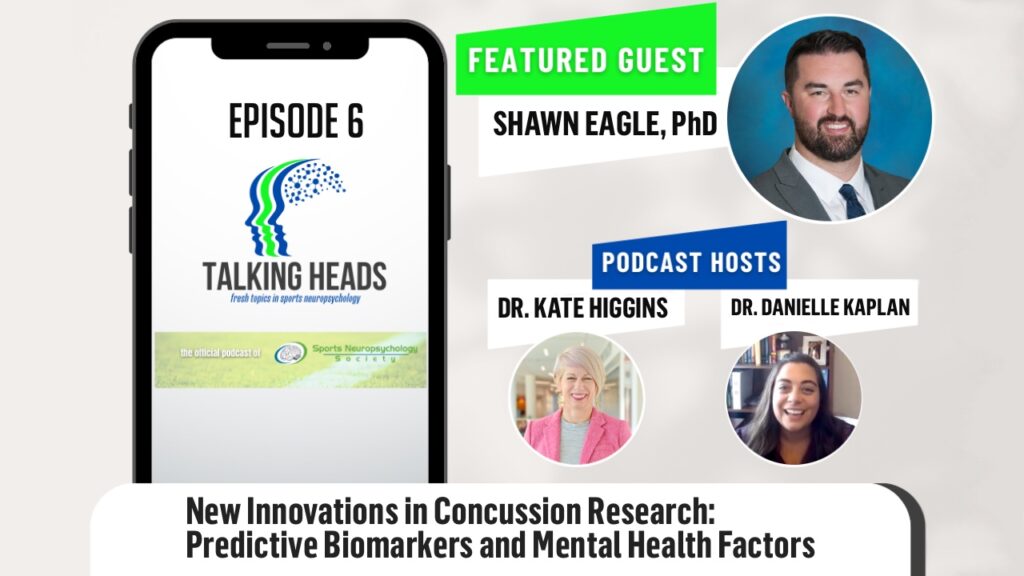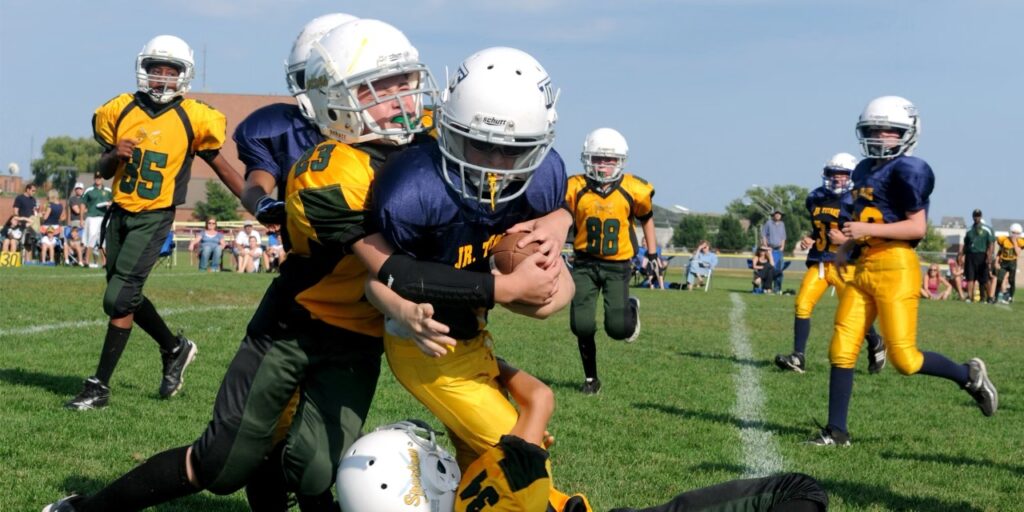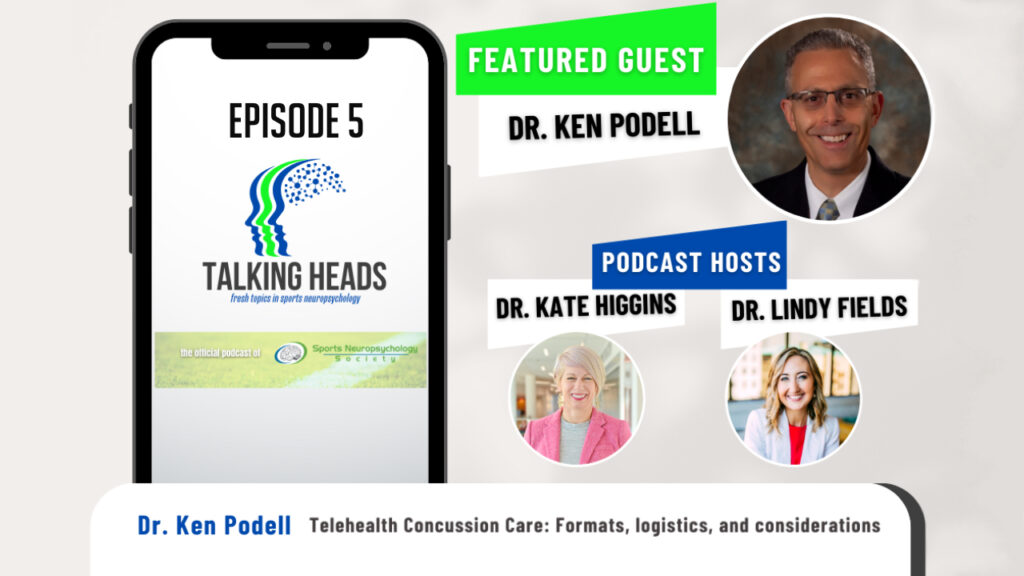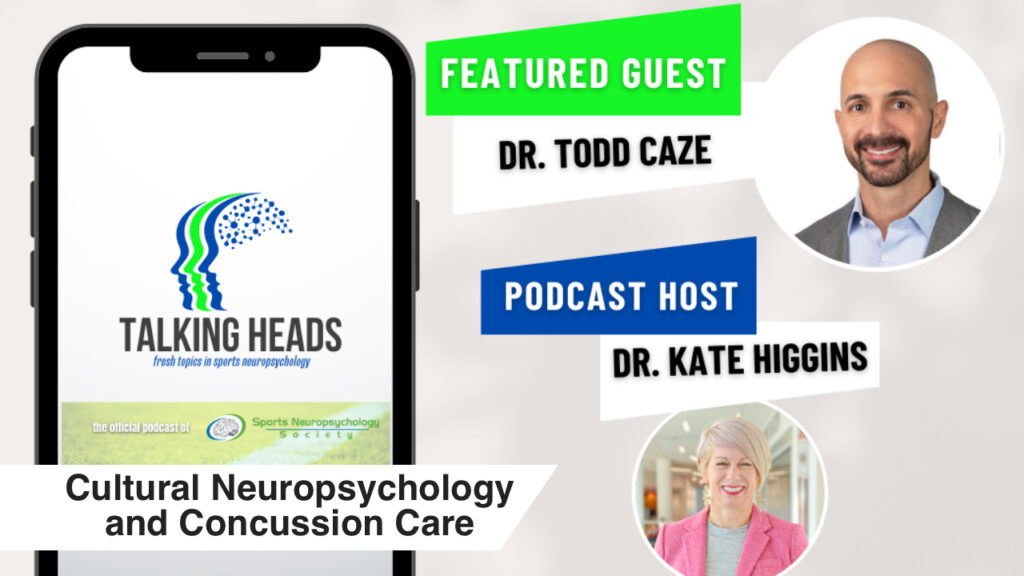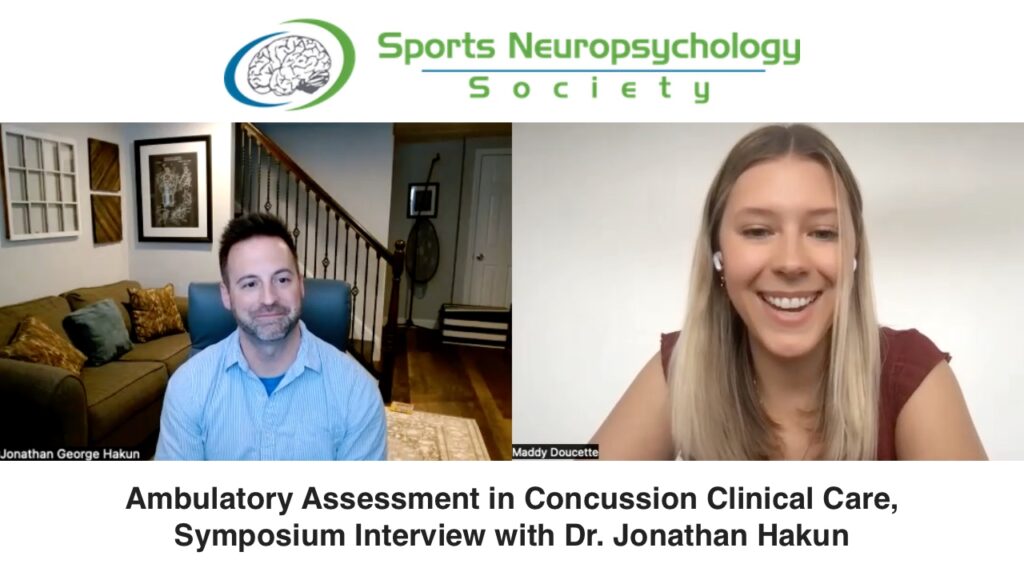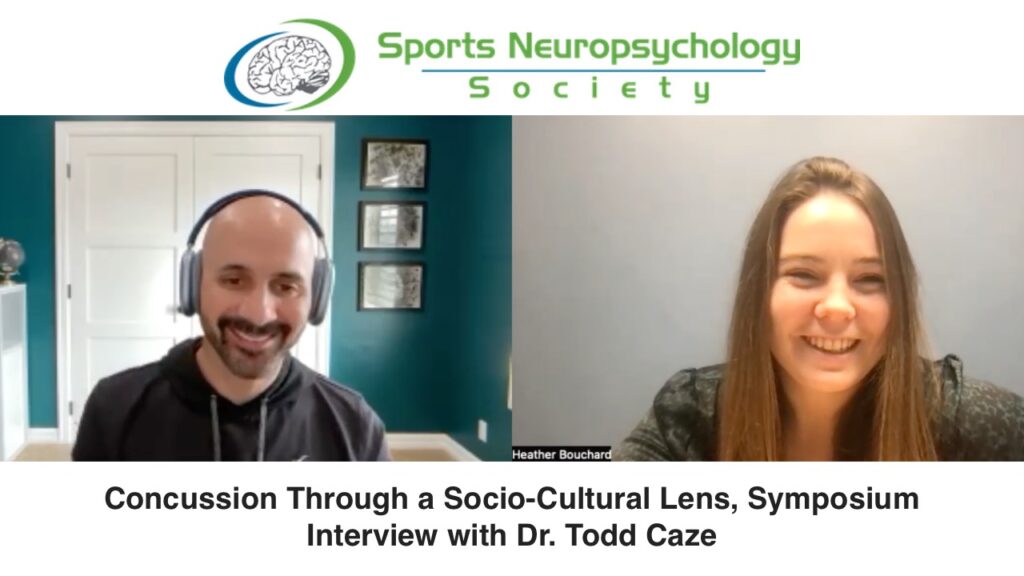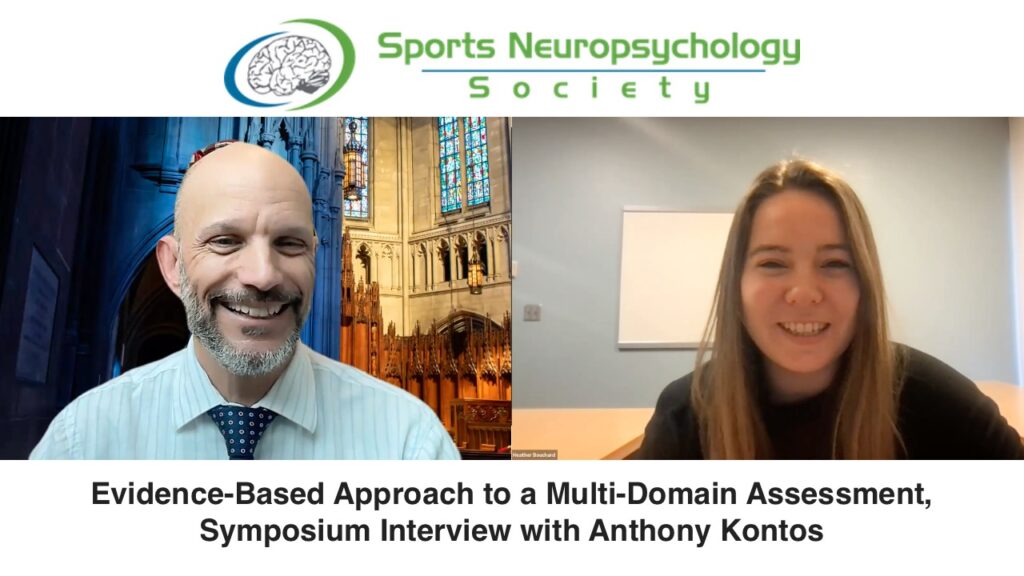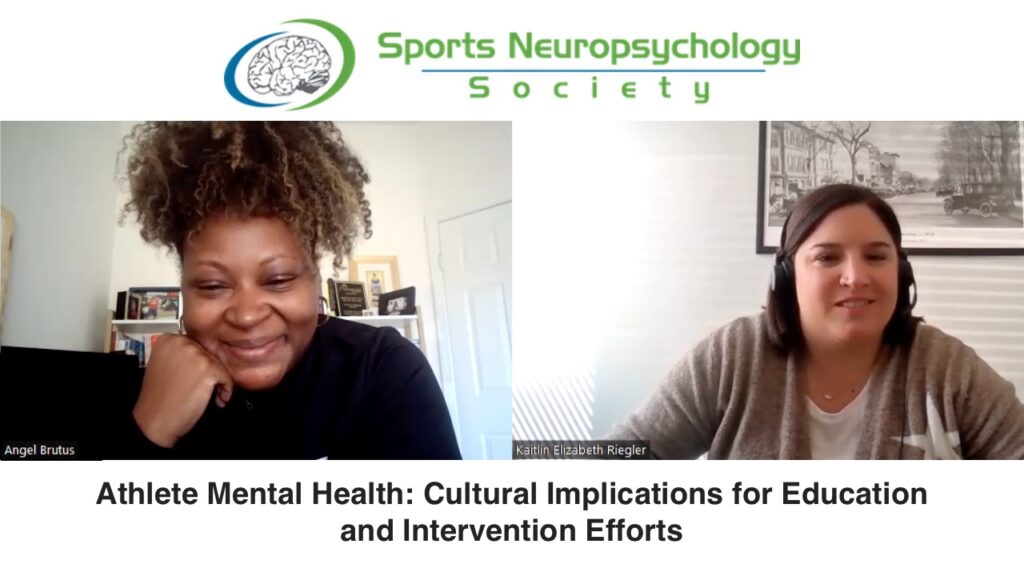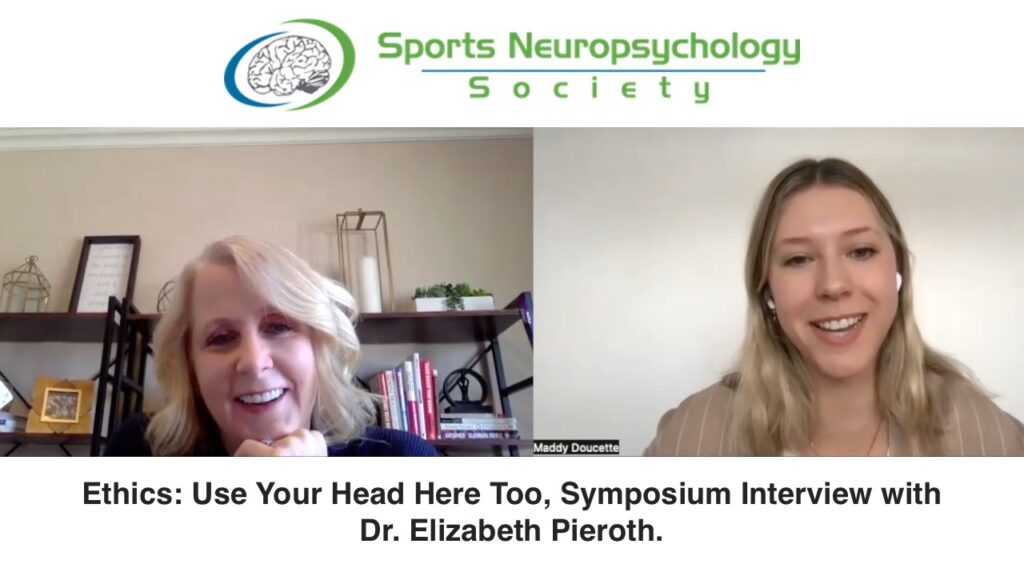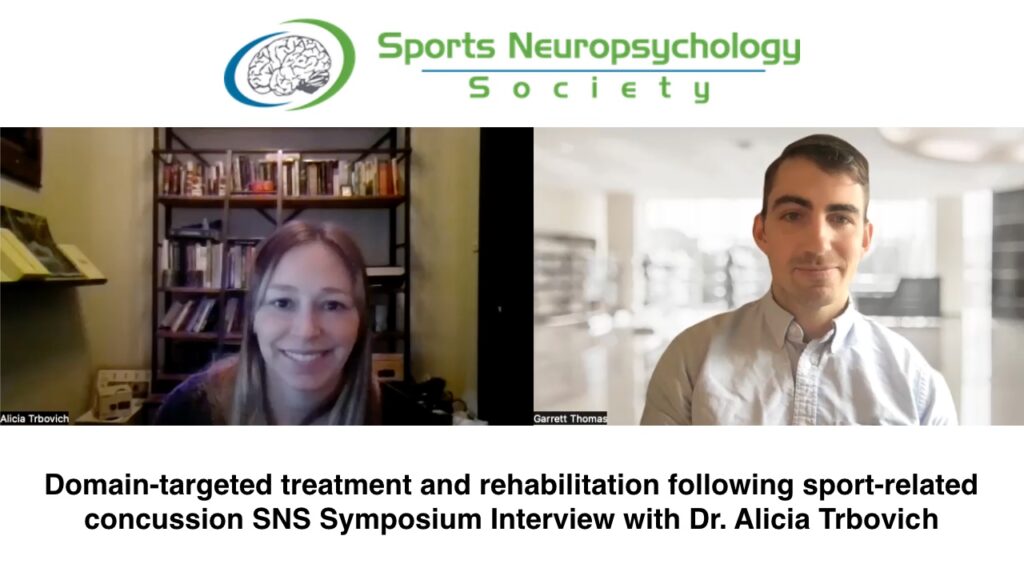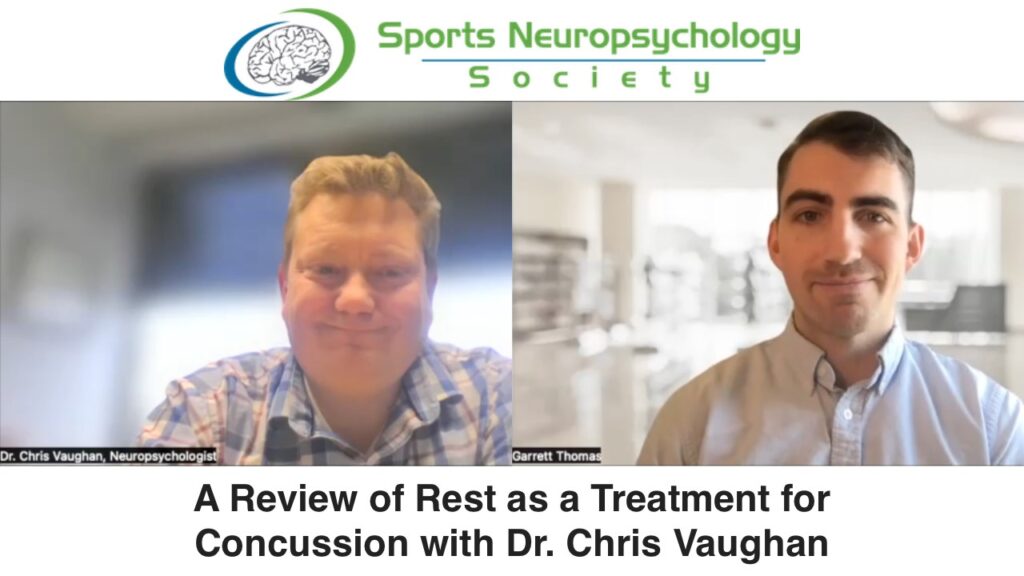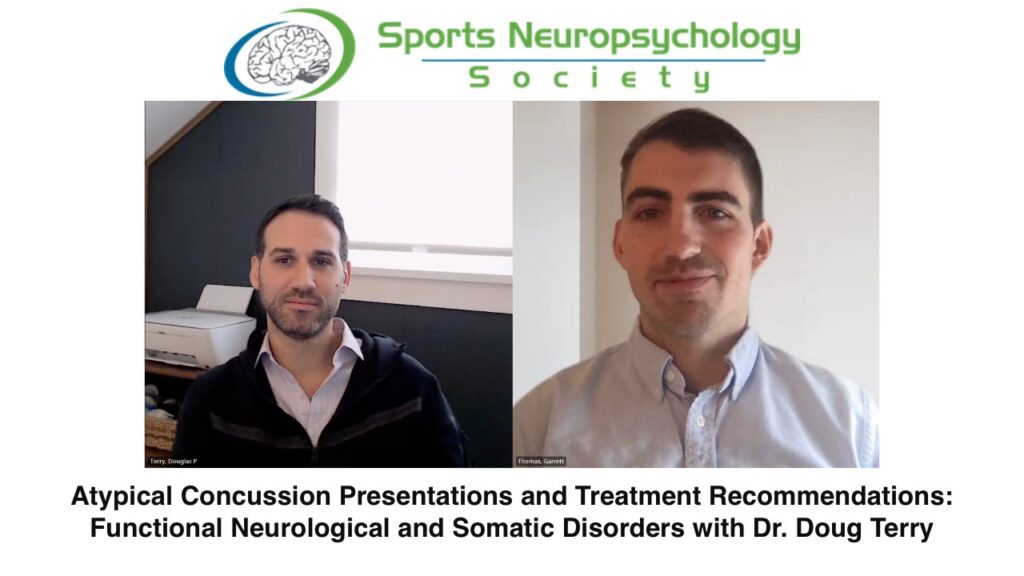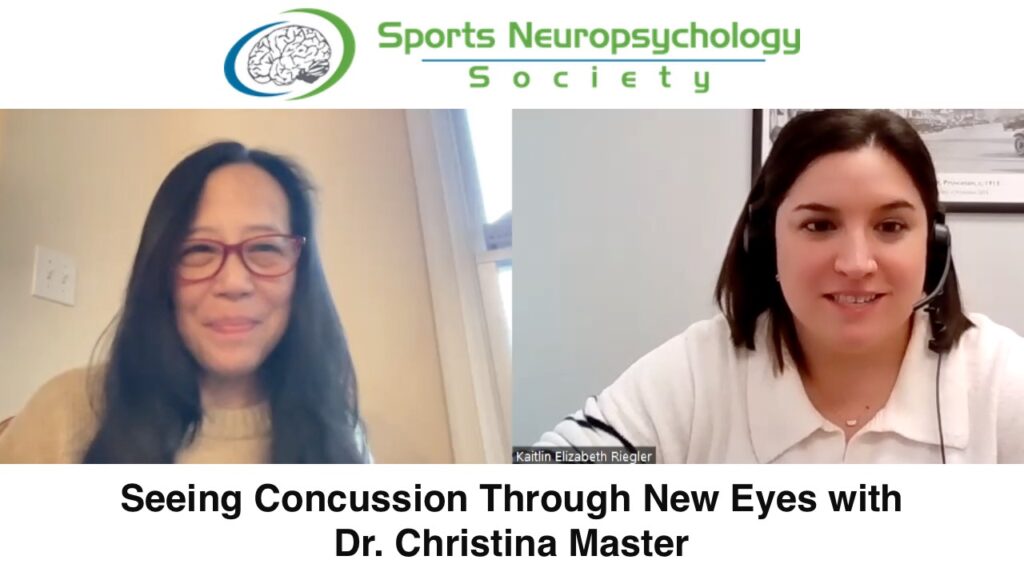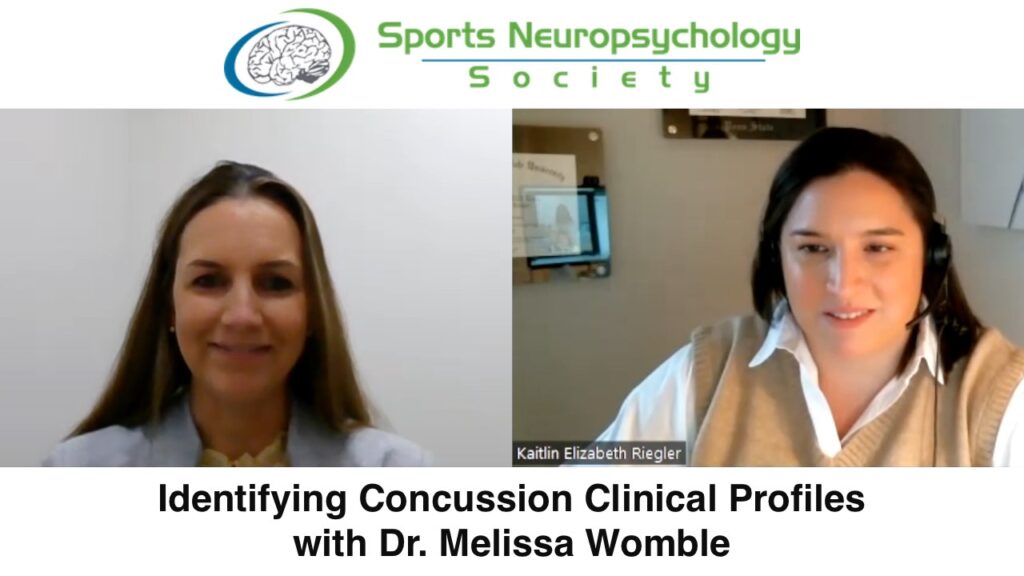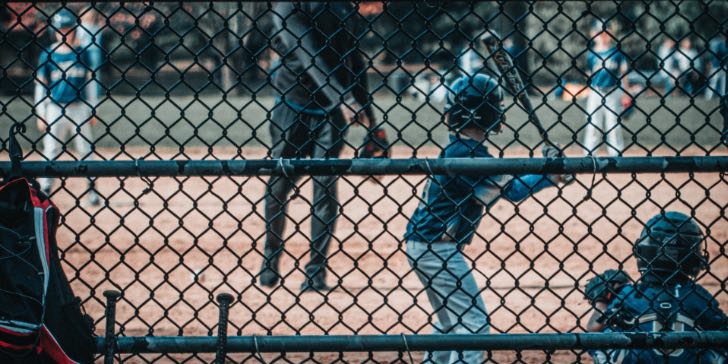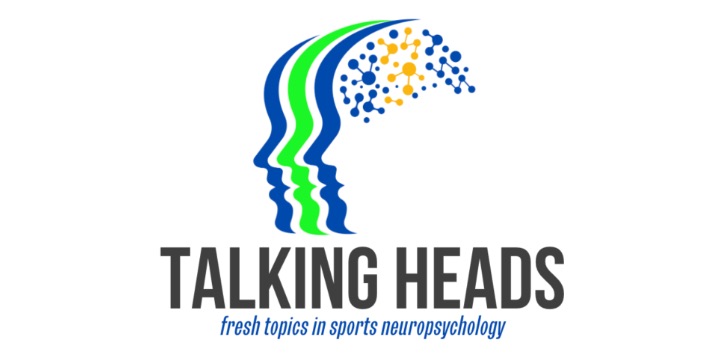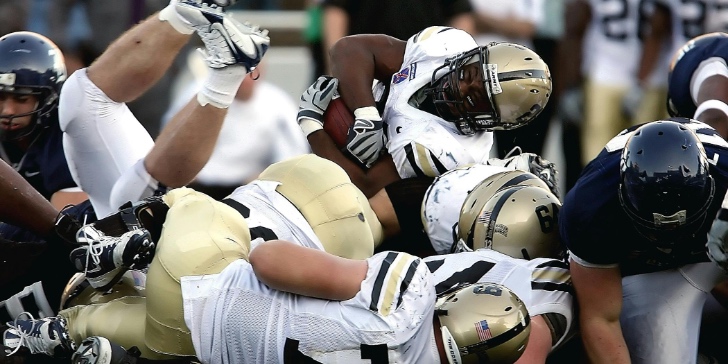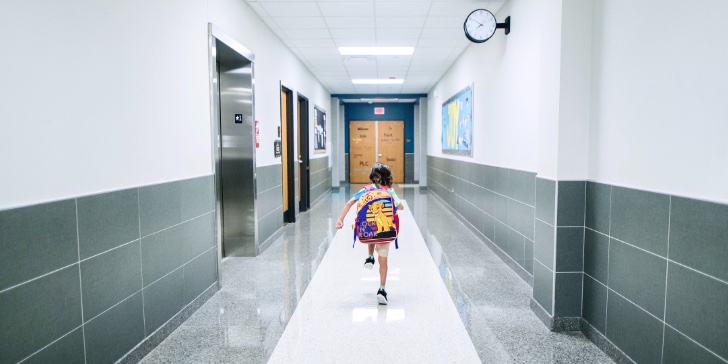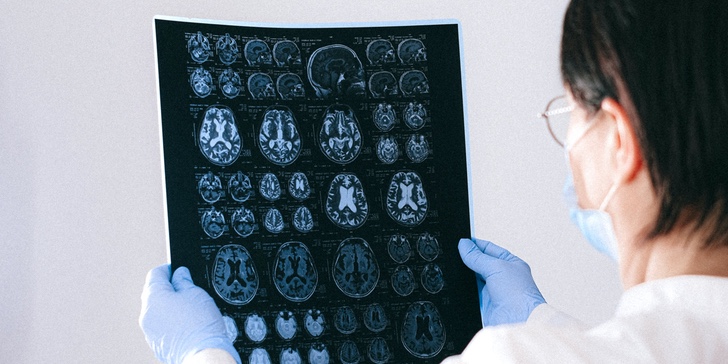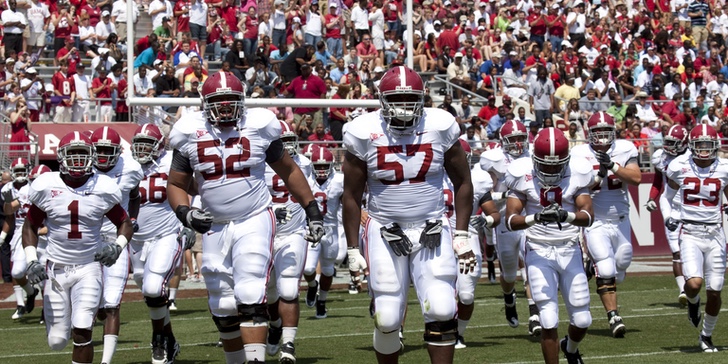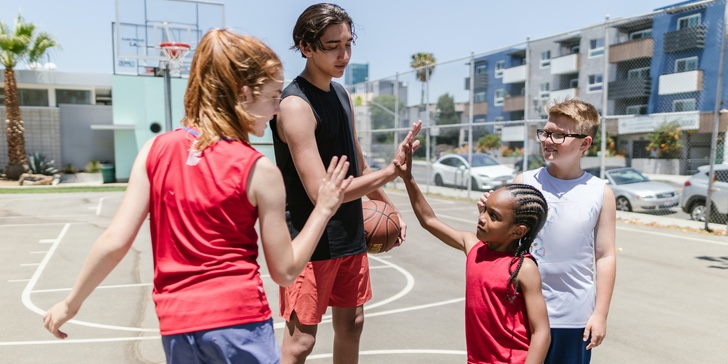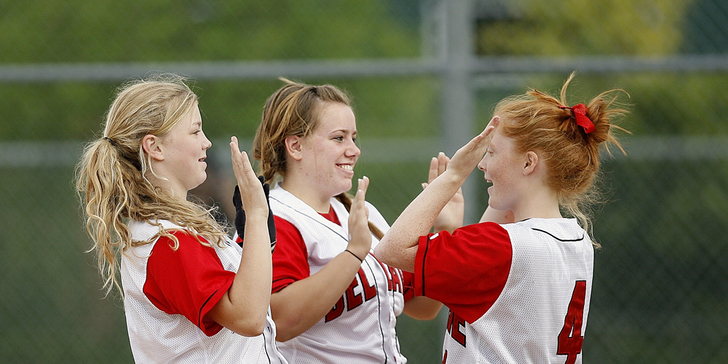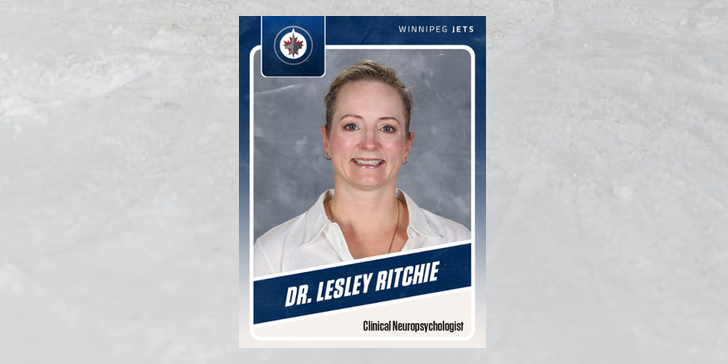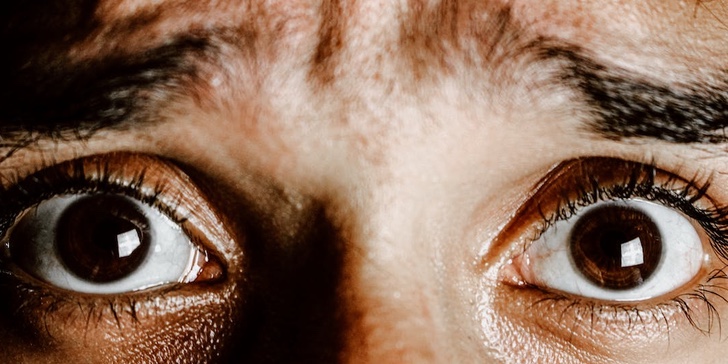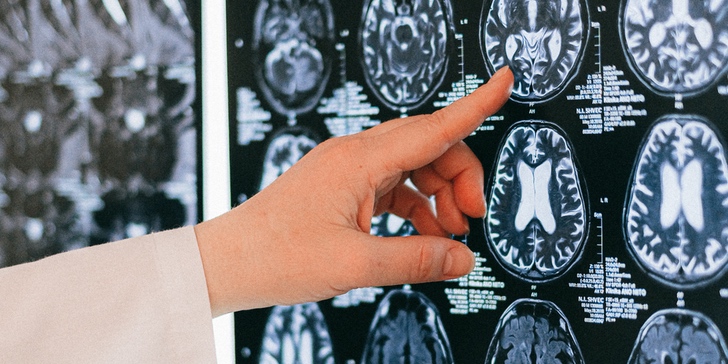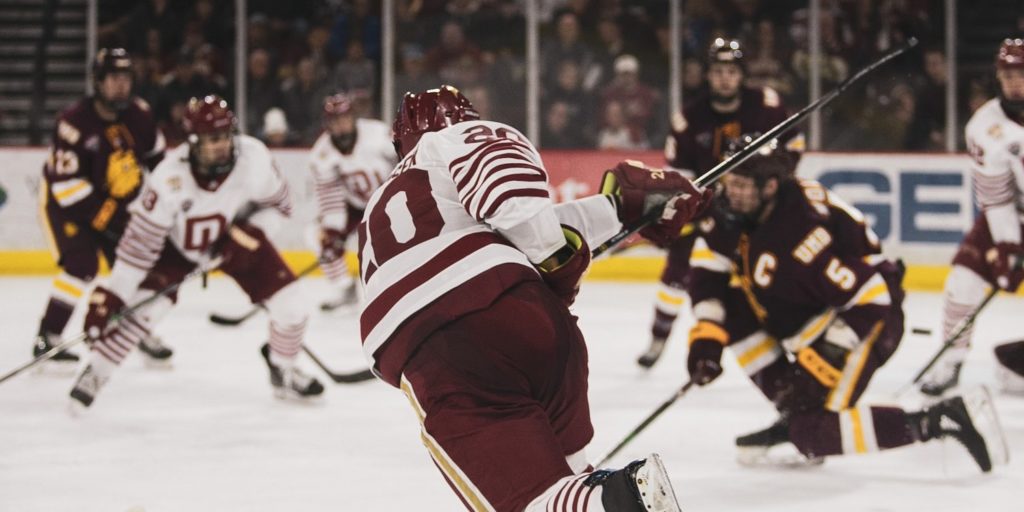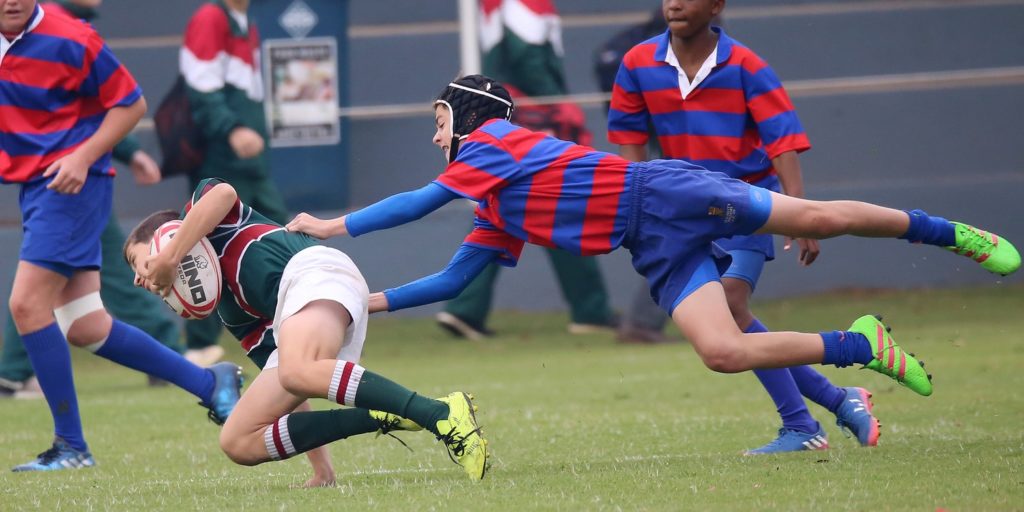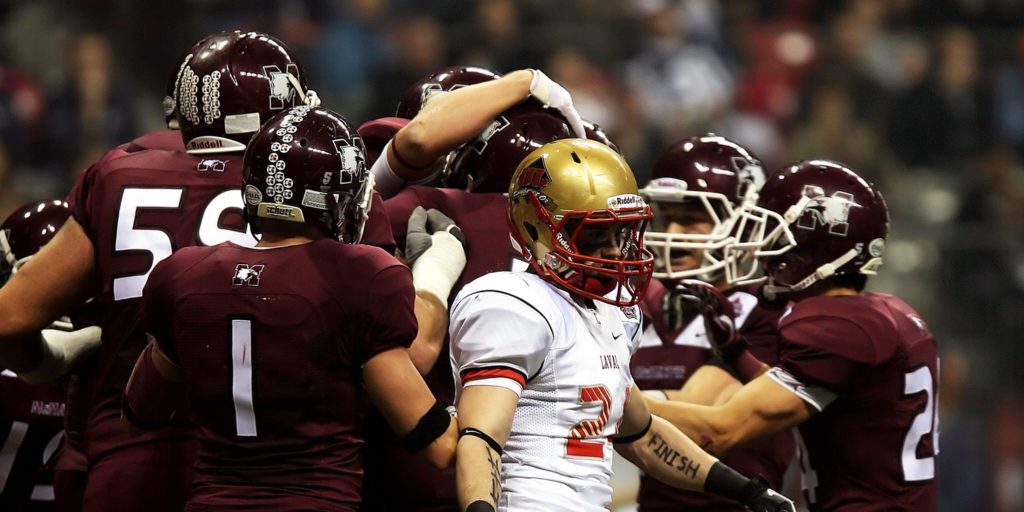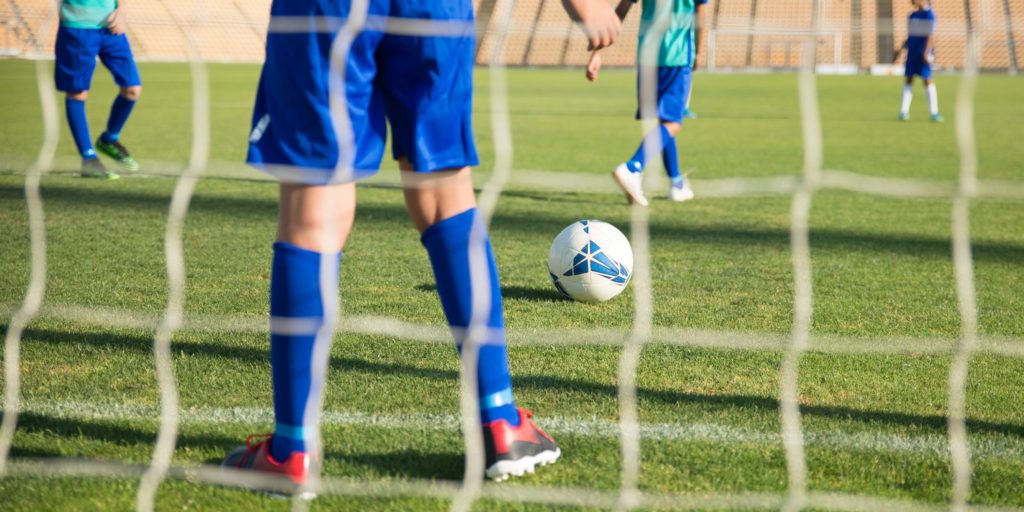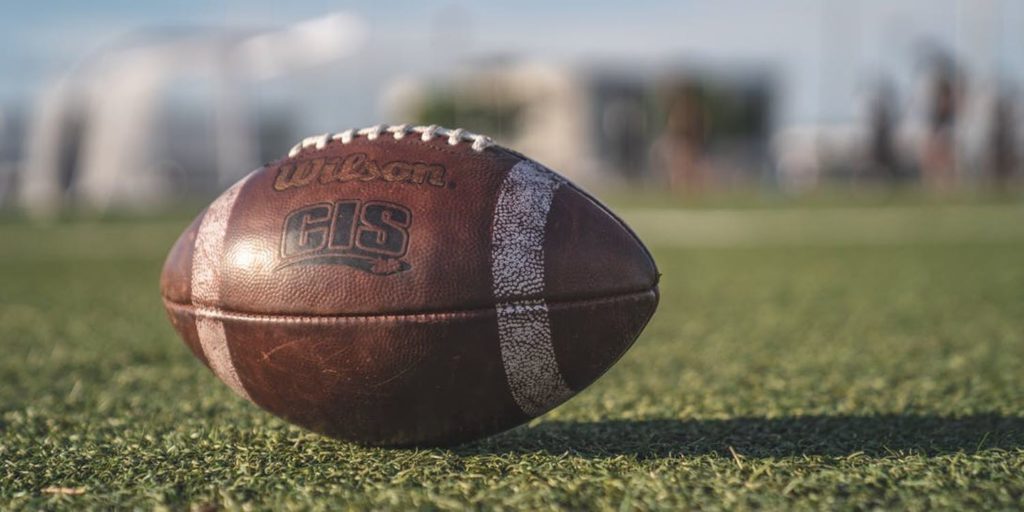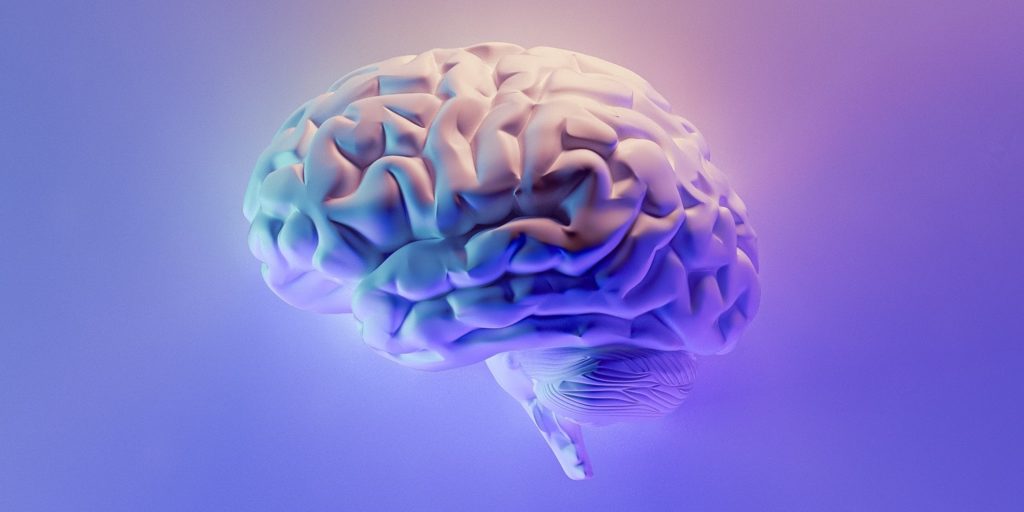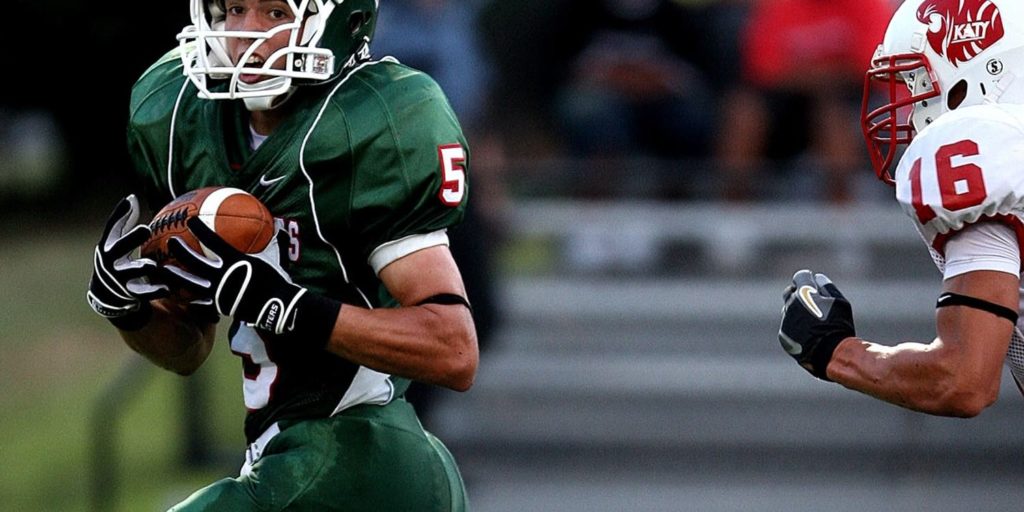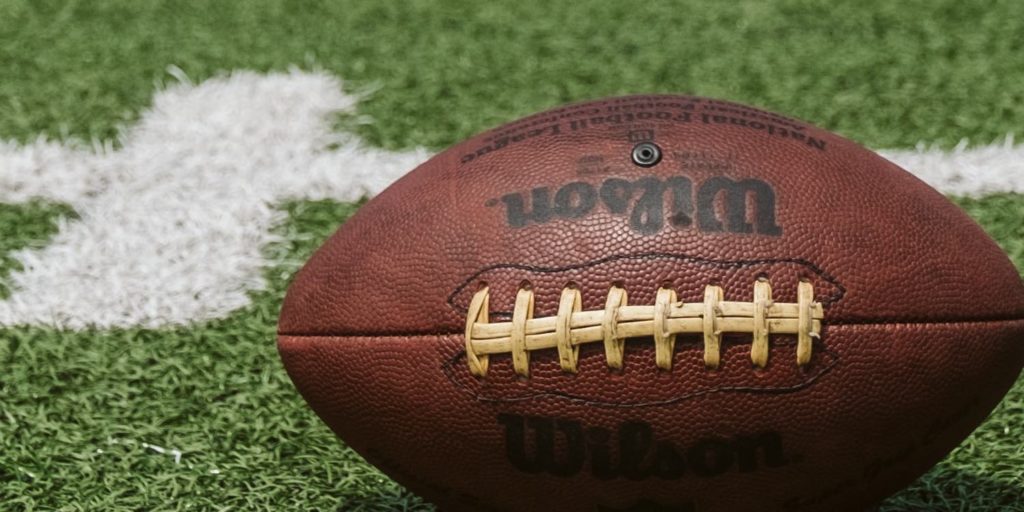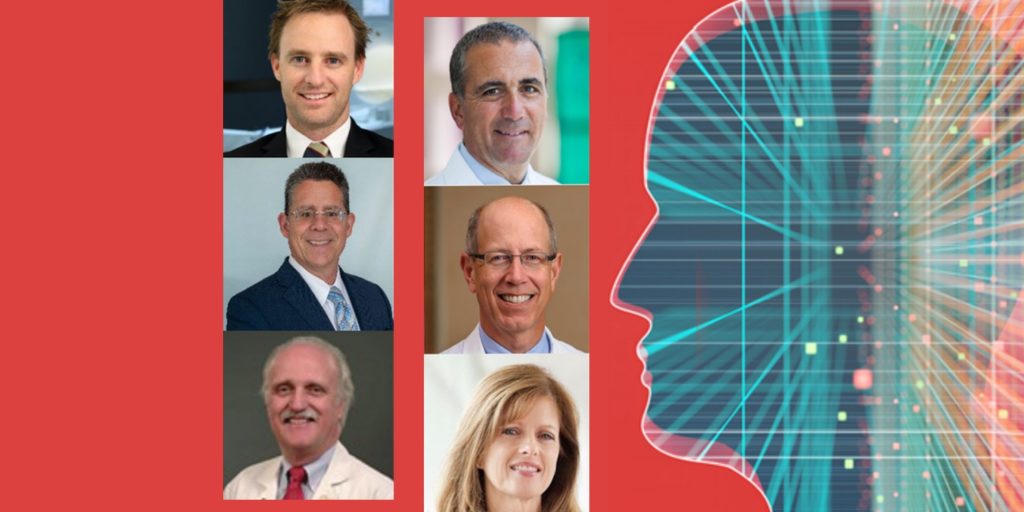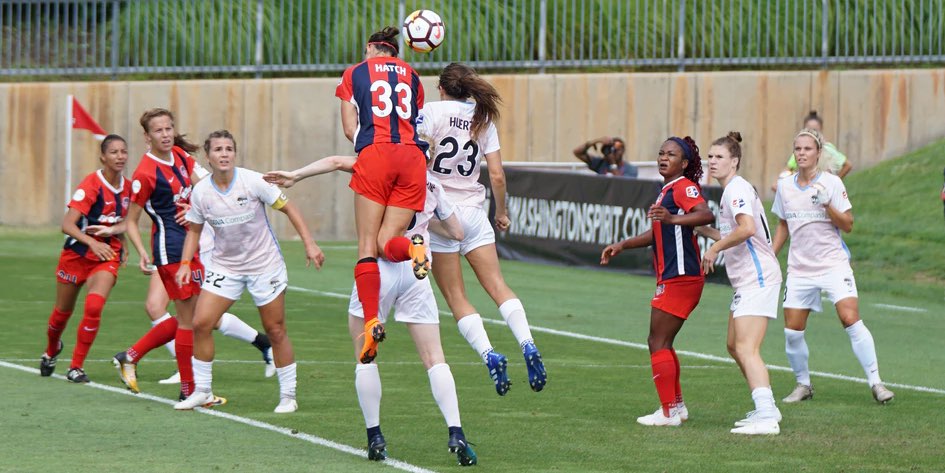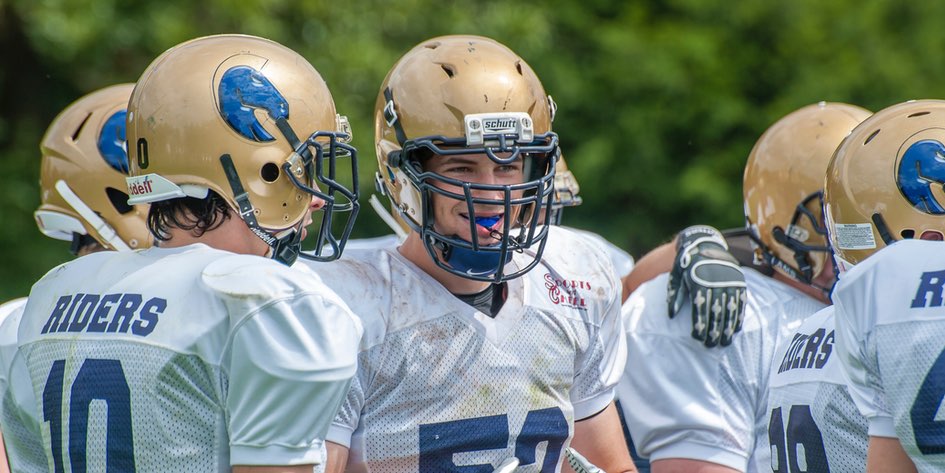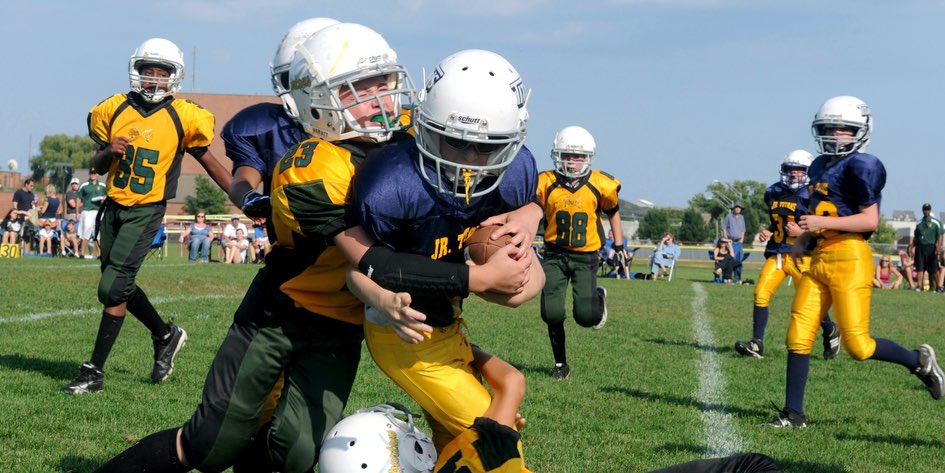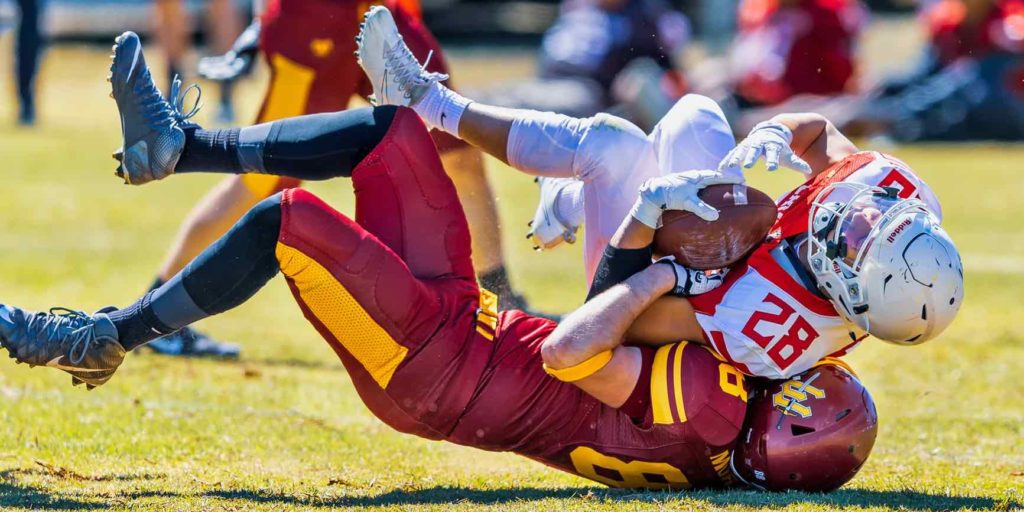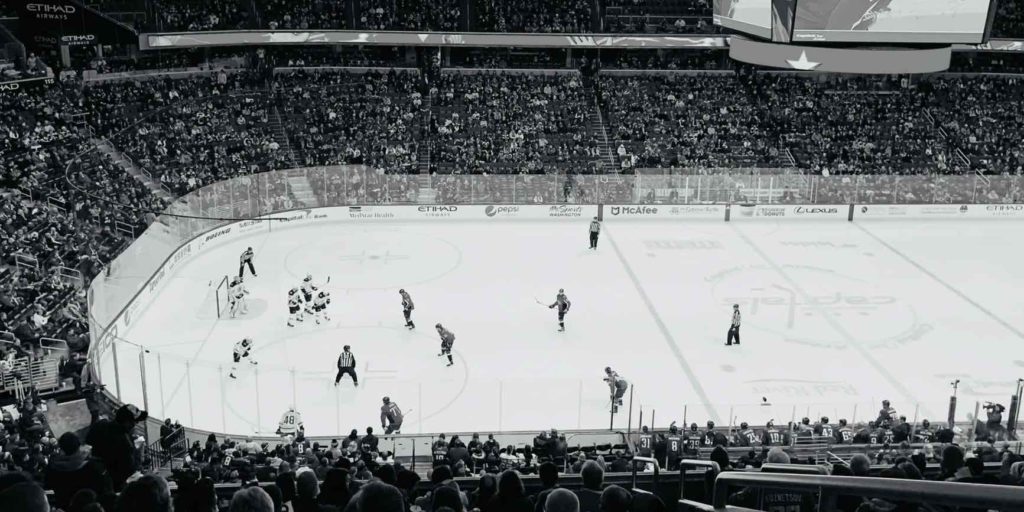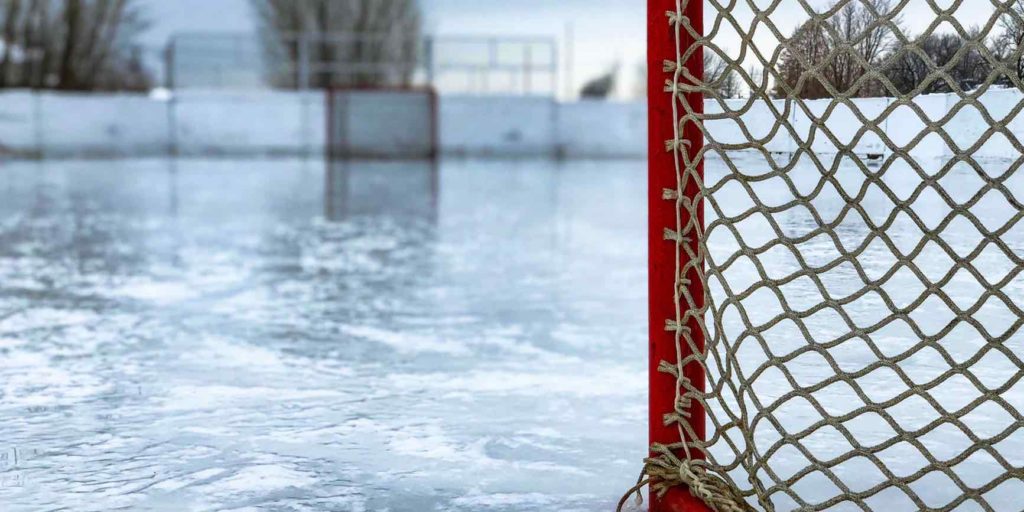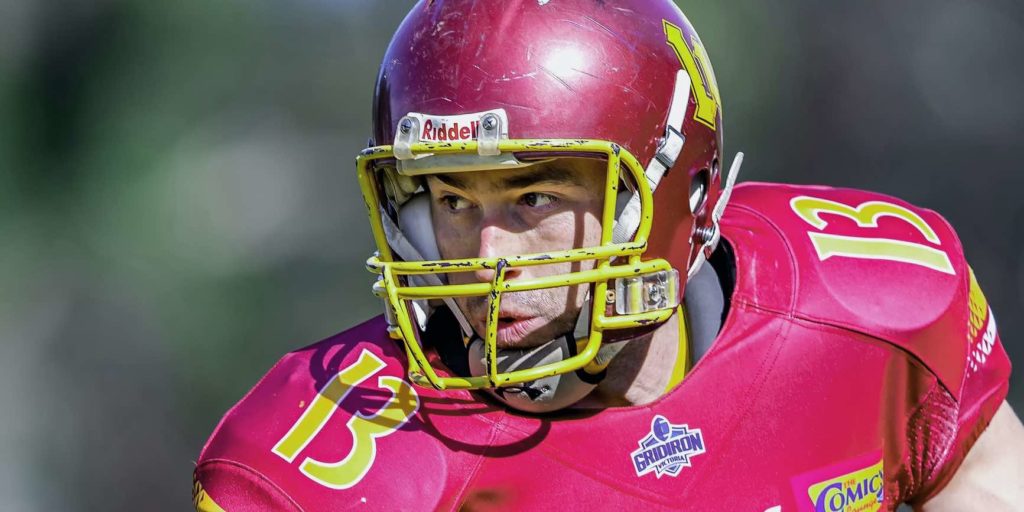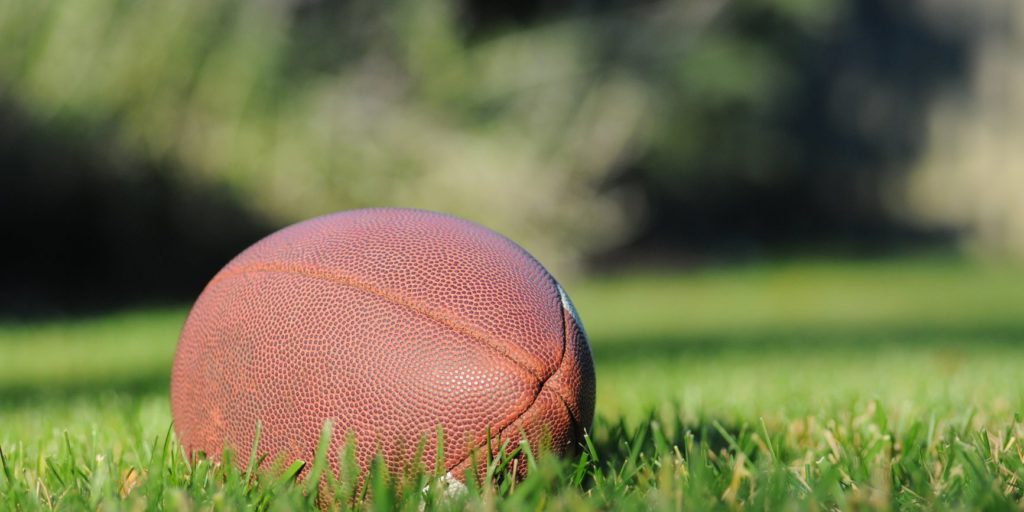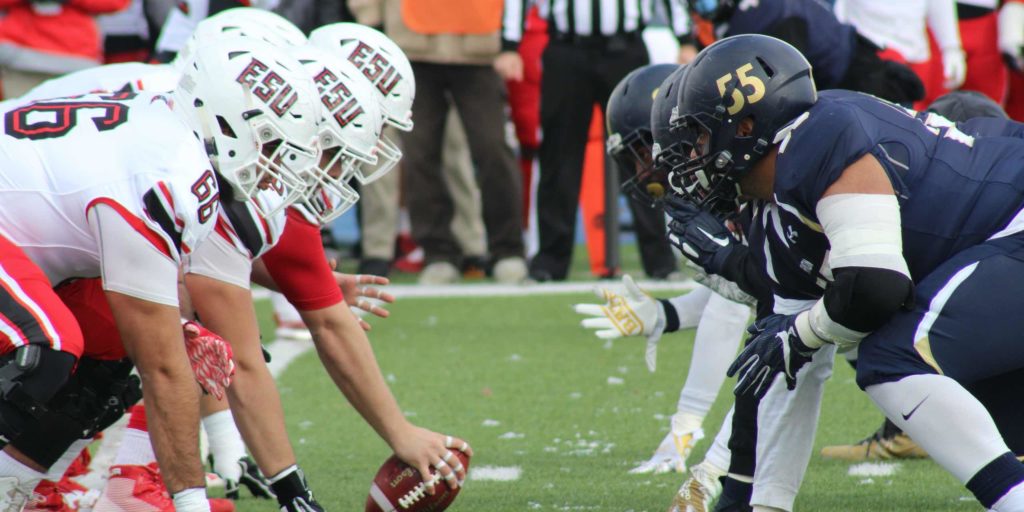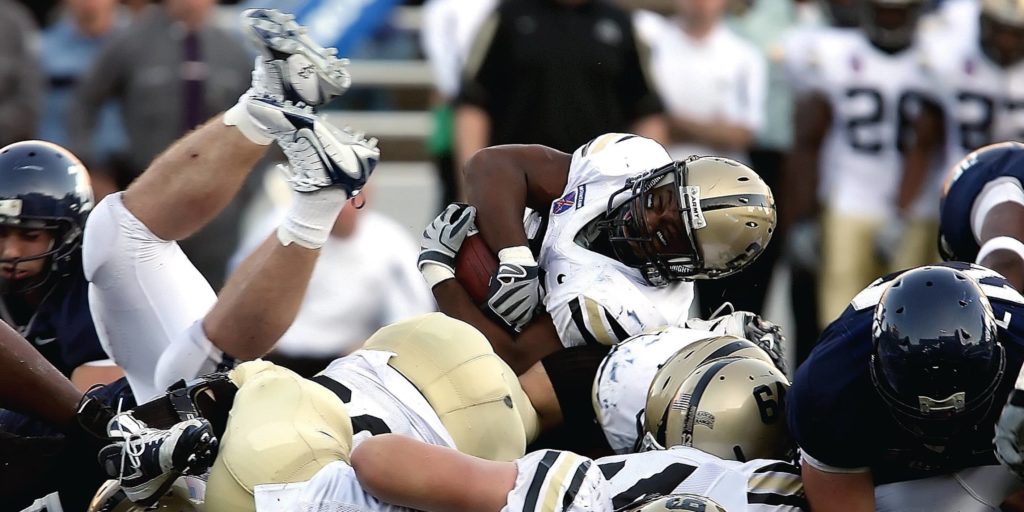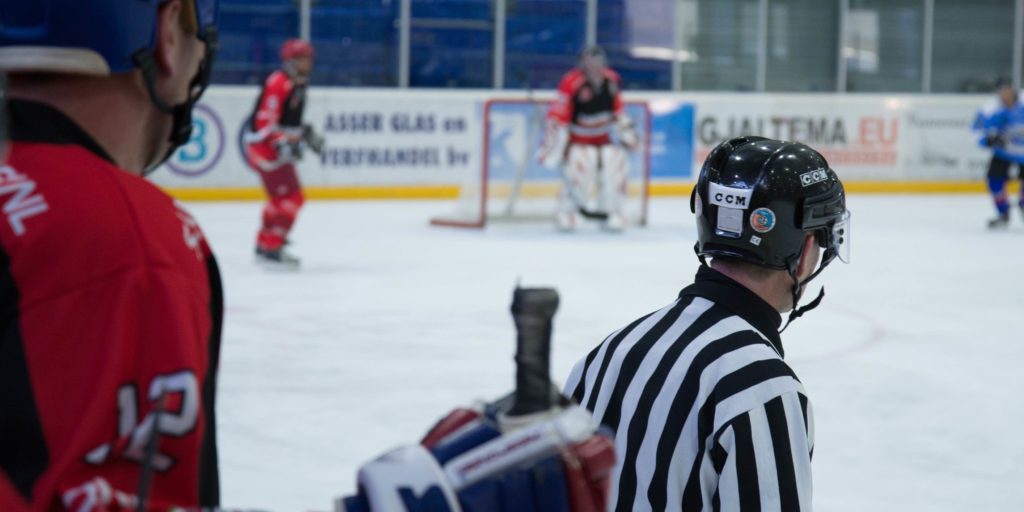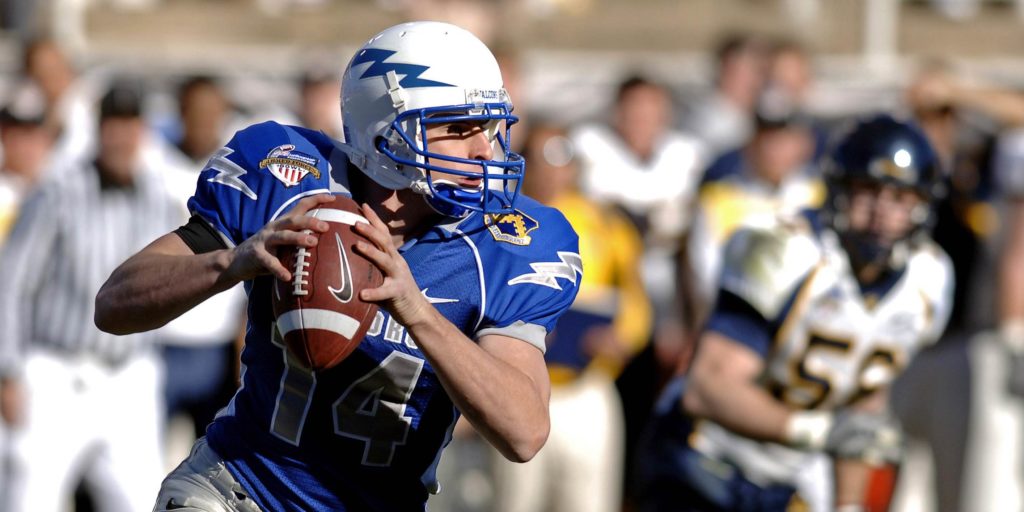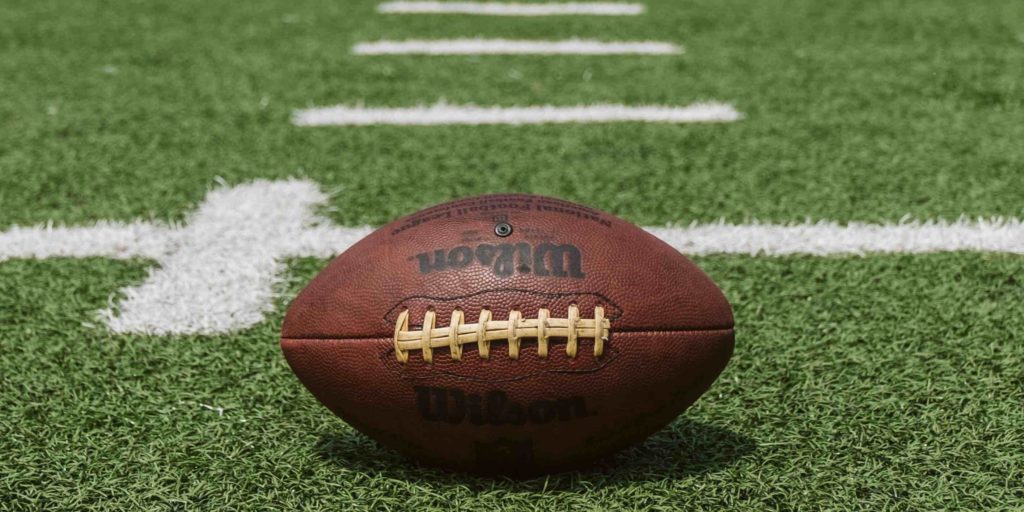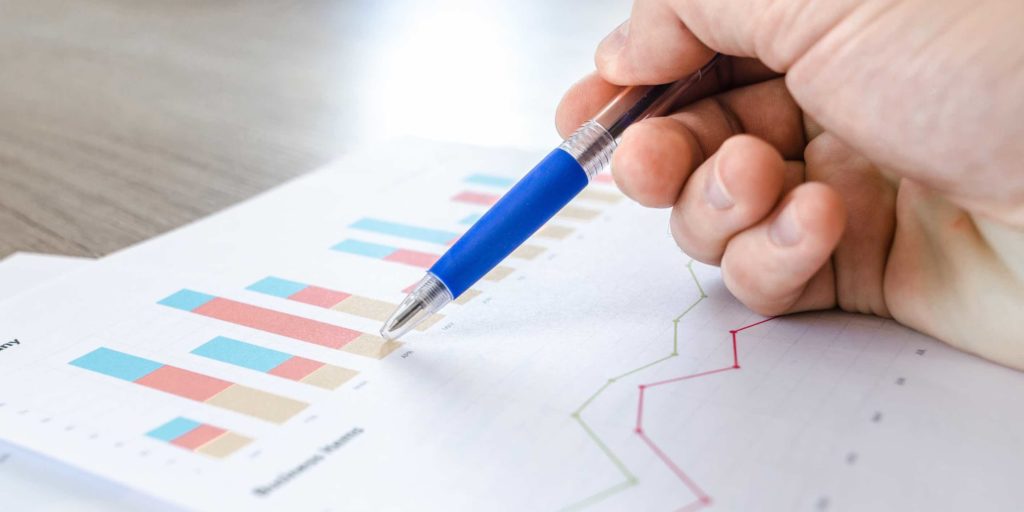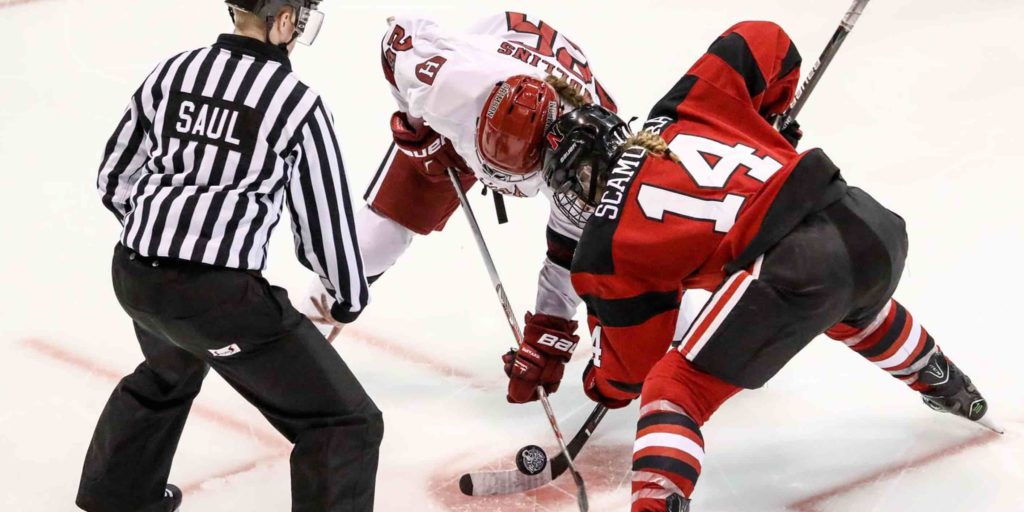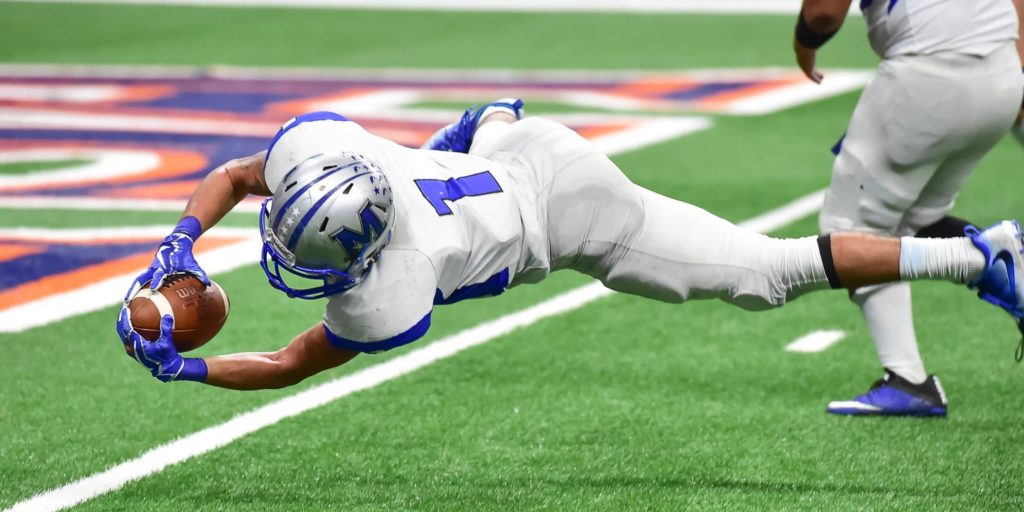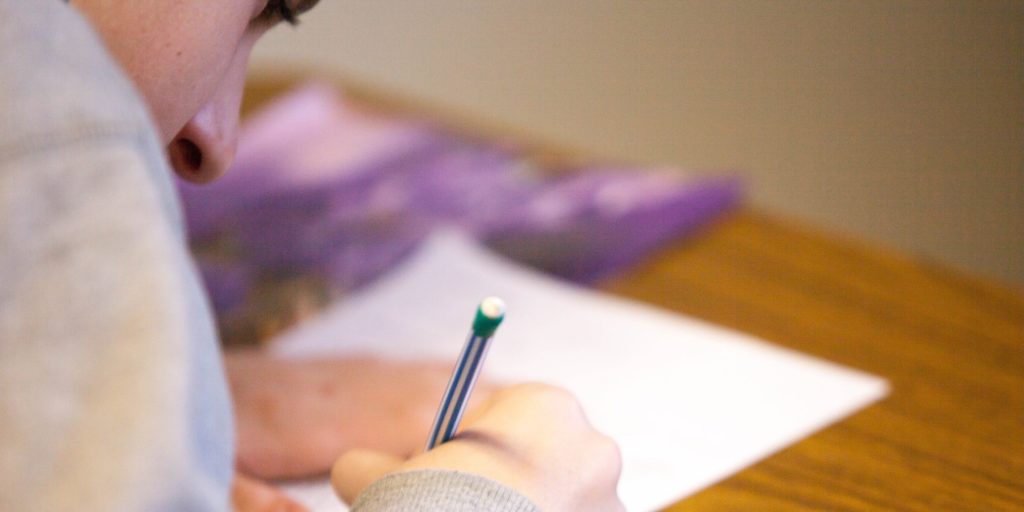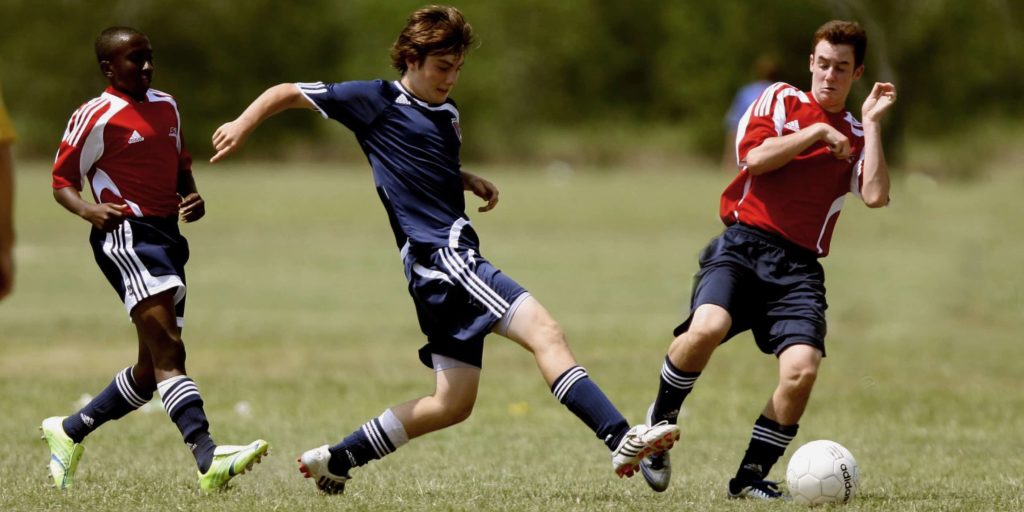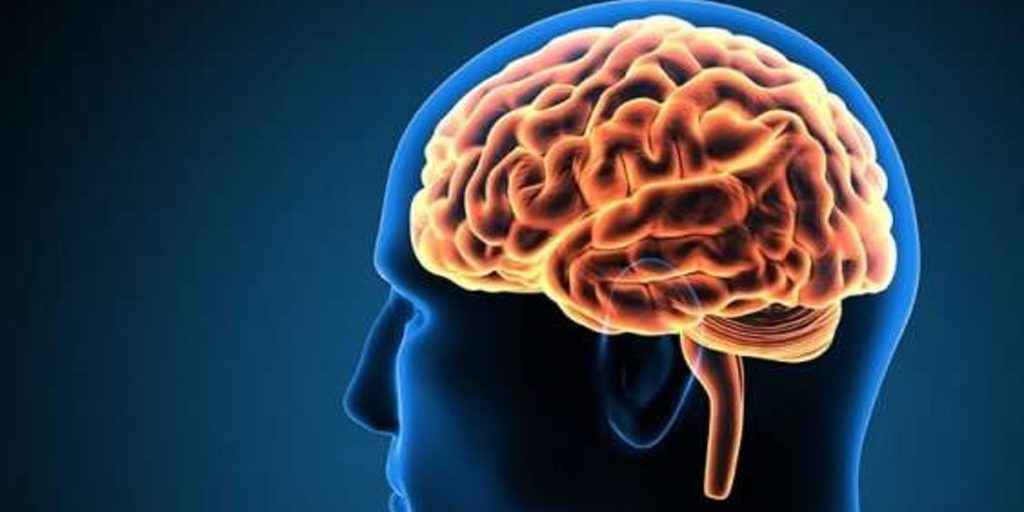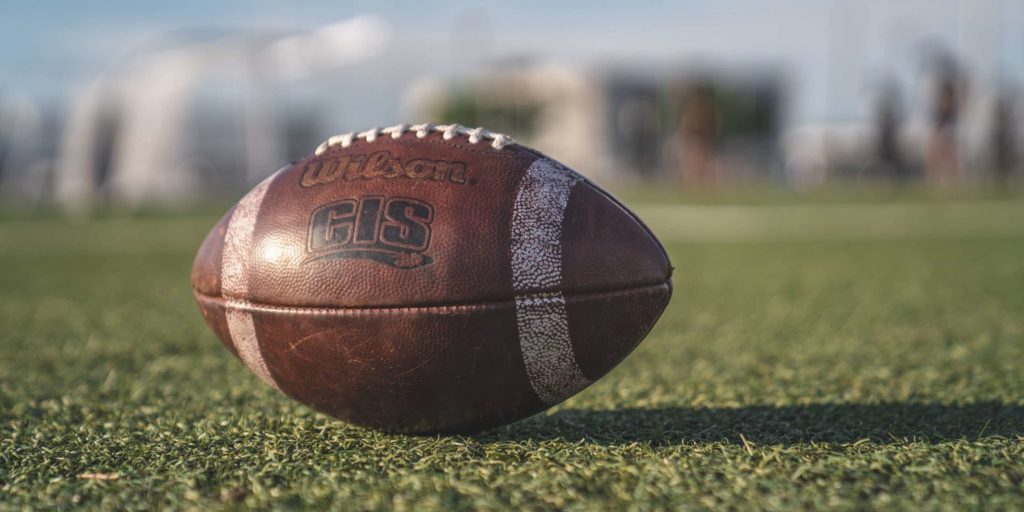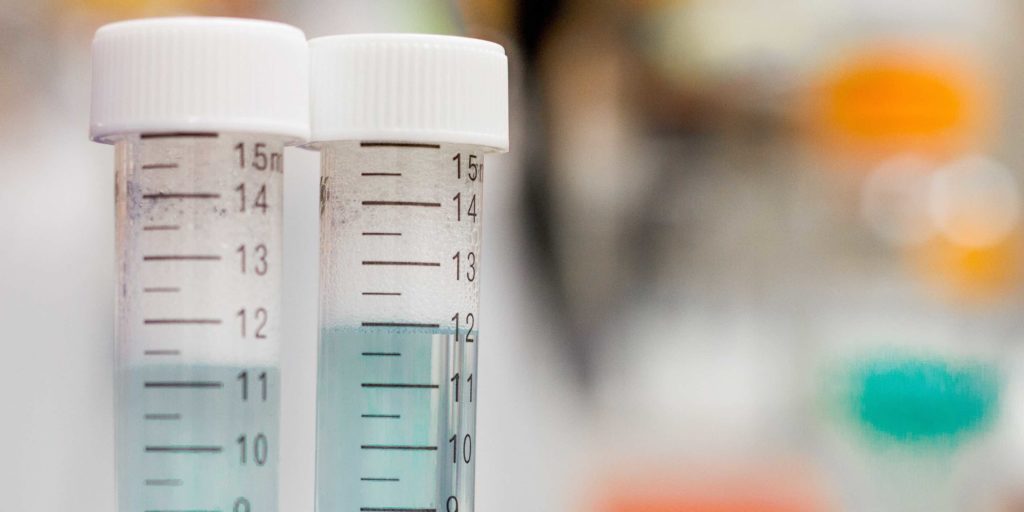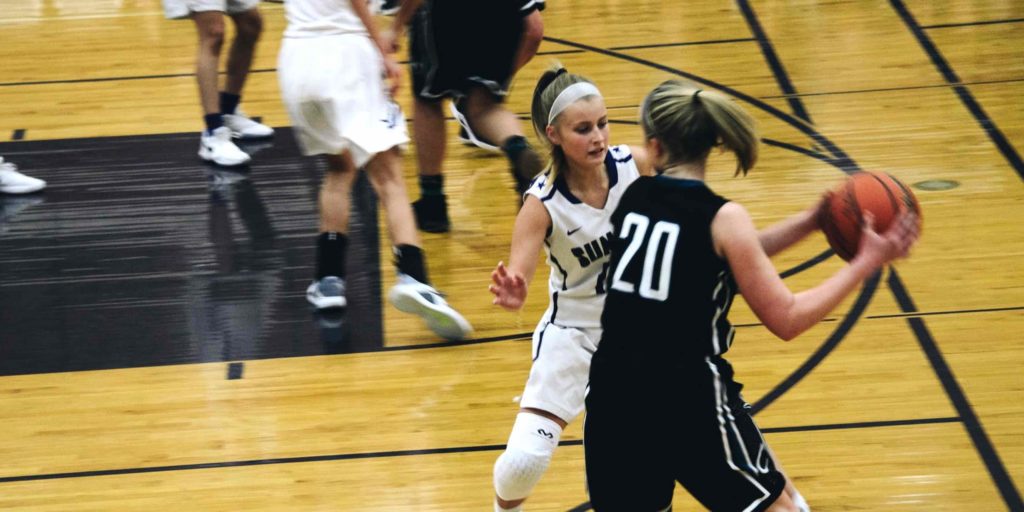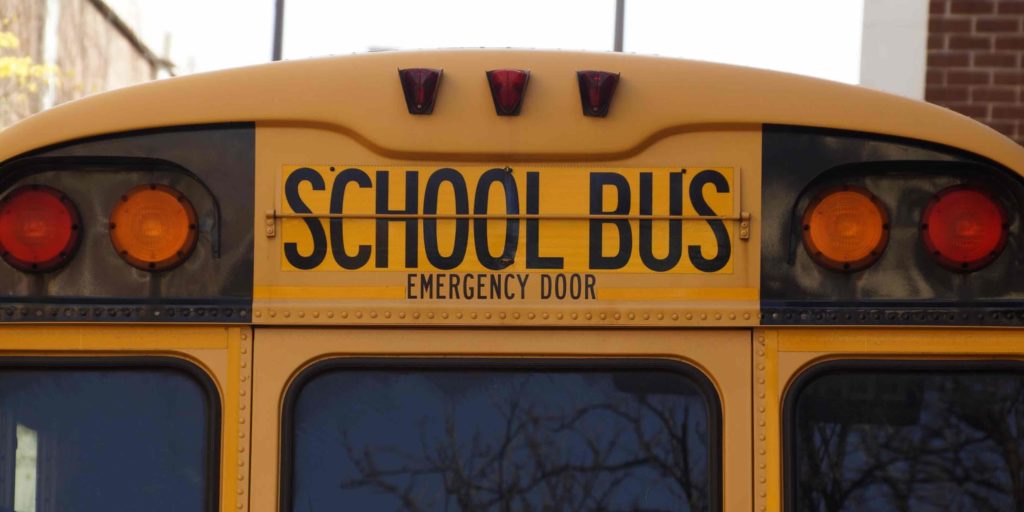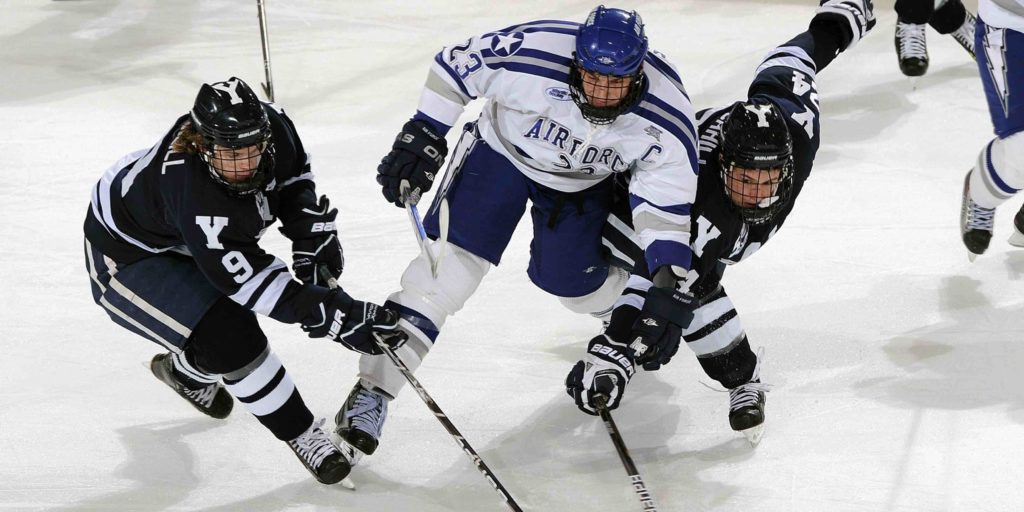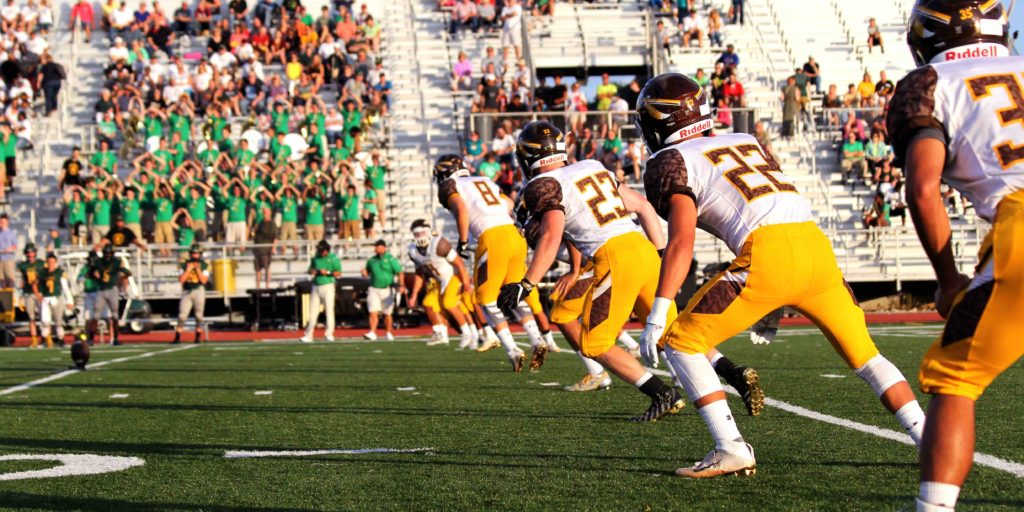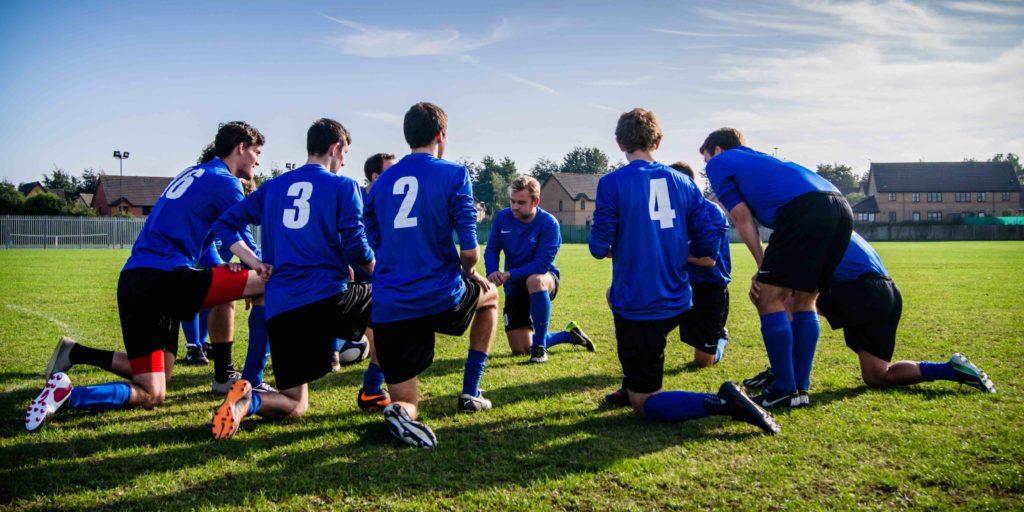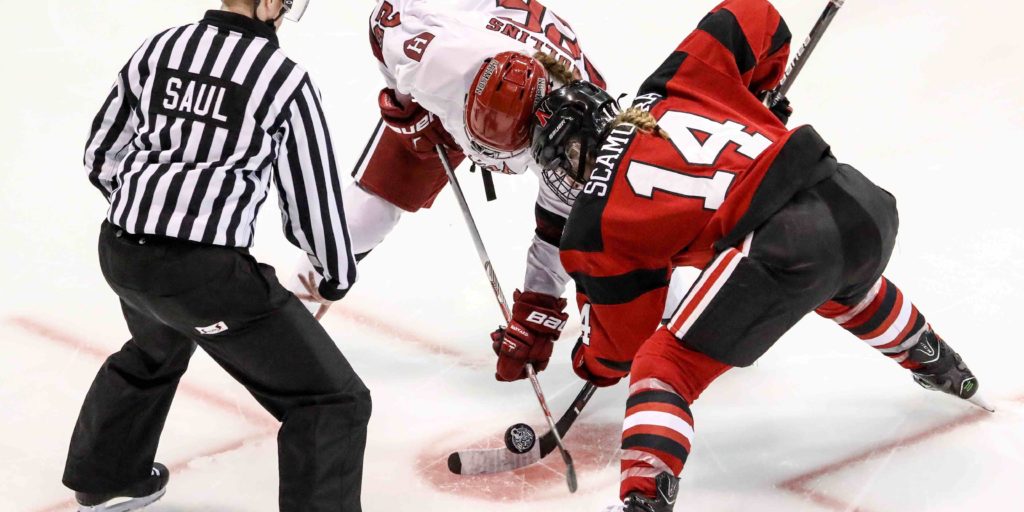Episode 6: New Innovations in Concussion Research: Predictive Biomarkers and Mental Health Factors
On this 6th episode of Talking Heads: Fresh Topics in Sports Neuropsychology, Dr. Danielle Kaplan and Dr. Kate Higgins talk with Shawn Eagle, PhD, a research assistant professor in the Department of Neurological Surgery at the University of Pittsburgh. The conversation focuses on his research using biomarkers to tailor concussion care, factors influencing physicians to…
Concussion to comeback: Young athlete’s journey after an ATV accident
In the critical early stages following a concussion or other traumatic brain injury, neuropsychologists play an essential role in patient recovery. Their expertise helps assess cognitive function and emotional well-being, ensuring a comprehensive approach to treatment. As highlighted in a recent article, timely intervention from neuropsychologist and SNS member, Dr. Summer Ott, significantly enhanced the…
Episode 5: Telehealth Concussion Care: Formats, Logistics & Considerations
In this 5th episode of “Talking Heads: The official podcast of the Sports Neuropsychology Society,” Dr. Kate Higgins and Dr. Lindy Fields talk with Dr. Ken Podell. Dr. Podell is a sports neuropsychologist and expert in telehealth concussion care. Whether you’re looking to expand into the telehealth space or just interested in learning about concussion…
Advancing Safety in Motorsports: A Review of Medical and Engineering Innovations in INDYCAR Racing, Symposium Interview with Dr. Danielle Ransom
In this video Heather Bouchard interviews Dr. Danielle Ransom regarding her upcoming talk at the SNS Symposium in May titled, “Advancing Safety in Motorsports: A Review of Medical and Engineering Innovations in INDYCAR Racing”. Dr. Danielle Ransom is a board-certified clinical neuropsychologist and subspecialist in pediatric neuropsychology at the Institute for Brain Protection Sciences at…
Episode 4: Cultural Neuropsychology and Concussion Care
In this 4th episode of “Talking Heads: The Official Podcast of the Sports Neuropsychology Society”, host Dr. Kate Higgins sits down with Dr. Todd Caze, a sports neuropsychologist and owner of a concussion clinic in Omaha, Nebraska. They discuss Dr. Caze’s experiences that fostered his passion for cultural neuropsychology and how Dr. Caze is using this lens…
Ambulatory Assessment in Concussion Clinical Care, Symposium Interview with Dr. Jonathan Hakun
In this video, Maddy Doucette interviews Dr. Jonathan Hakun regarding his upcoming talk at the SNS Symposium in May titled, “Ambulatory Assessment in Concussion Clinical Care”. Dr. Hakun is the director of the Cognitive and Mobile Phenotyping Neurolaboratory at Penn State University College of Medicine. His research is focused on the cognitive neuroscience of aging,…
Concussion Through a Socio-Cultural Lens – Symposium Interview with Dr. Todd Caze
In this video Heather Bouchard interviews Dr. Todd Caze regarding his upcoming talk at the SNS Symposium in May titled, “Concussion Through a Socio-Cultural Lens. Dr. Todd Caze is a fellowship-trained sports neuropsychologist and one of the first to complete a two-year sports medicine fellowship in pediatric concussion. He treats patients through the Caze Concussion…
Evidence-Based Approach to a Multi-Domain Assessment – Interview with Dr. Anthony Kontos
In this video Heather Bouchard interviews Dr. Anthony Kontos regarding his upcoming talk at the SNS Symposium in May titled, “Evidence-Based Approach to a Multi-Domain Assessment. Dr. Anthony Kontos is a professor and vice-chair of clinical research in the Department of Orthopedic Surgery at the University of Pittsburgh, and research director of the Concussion Research…
Athlete Mental Health: Cultural Implications for Education and Intervention Efforts with Dr. Angel Brutus
In this video, Dr. Kaitlin Riegler interviews Dr. Angel Brutus regarding her upcoming talk at the SNS Symposium in May titled, Athlete Mental Health: Cultural Implications for Education and Intervention Efforts.” Dr. Brutus is a member of the U.S. Olympic and Paralympic Committee’s psychological services leadership team within the sports medicine department. Dr. Brutus is a Certified…
Ethics: Use Your Head Here Too with Dr. Elizabeth Pieroth
In this video, Maddy Doucette interviews Dr. Elizabeth Pieroth regarding her upcoming talk at the SNS Symposium in May titled, “Ethics: Use Your Head Here Too”. Dr. Elizabeth Pieroth is a Board Certified Clinical Neuropsychologist and is the Director of the Concussion Program at Midwest Orthopaedics at Rush and Rush University Medical Center. For more information about the SNS Symposium…
Breaking News! – Early Return To School Was Associated With Lower Concussion Symptom Burden After 14 Days
Is prolonged rest harmful when recovering from a concussion? A recent study looked at children, ages 5-18, who returned to school 0-2 days after a mild traumatic brain injury (i.e., concussion). The findings? Early return to school was associated with lower concussion symptom burden after 14 days. These results suggest that a prolonged absence from…
Domain-Targeted Treatment and Rehabilitation Following Sport-Related Concussion with Dr. Alicia Trbovich
In this video, Garrett Thomas interviews Dr. Alicia Trbovich regarding her upcoming talk at the SNS Symposium in Philadelphia this May titled, “Domain-targeted treatment and rehabilitation following sport-related concussion.” Dr. Trbovich is a licensed neuropsychologist affiliated with the UPMC Sports Medicine Concussion Program, and she is an Assistant Professor at the University of Pittsburgh in…
A Review of Rest as a Treatment for Concussion with Dr. Christopher Vaughan
In this video, Garrett Thomas interviews Dr. Christopher Vaughan regarding his upcoming talk at the SNS Symposium in Philadelphia this May titled, “A Review of Rest as a Treatment for Concussion.” Dr. Vaughan is a licensed pediatric neuropsychologist, and he is a member of the Division of Neuropsychology at Children’s National Hospital. Dr. Vaughan is…
Atypical Concussion Presentations and Treatment Recommendations with Dr. Doug Terry
In this video Garrett Thomas interviews Dr. Doug Terry regarding his upcoming talk at the SNS Symposium in Philadelphia this May titled, “Atypical Concussion Presentations and Treatment Recommendations: Functional Neurological and Somatic Disorders.” Dr. Terry is a board certified clinical neuropsychologist. Dr. Terry is an Assistant Professor at the Department of Neurological Surgery at Vanderbilt…
Seeing Concussion Through New Eyes with Dr. Christina Master
In this video Dr. Kaitlin Riegler interviews Dr. Christina Master regarding her upcoming talk at the SNS Symposium in May titled “Minds Matter: Seeing Concussion Through New Eyes.” Dr. Master is a pediatrician and sports medicine specialist at Children’s Hospital of Philadelphia (CHOP) with expertise in primary care sports medicine and brain injury medicine. She…
Identifying Concussion Clinical Profiles: A Clinical Case Discussion with Dr. Melissa Womble
In this video Dr. Kaitlin Riegler interviews Dr. Melissa Womble regarding her upcoming talk at the SNS Symposium in May titled, “Identifying Concussion Clinical Profiles: A Clinical Case Discussion”. Dr. Melissa Womble a fellowship-trained neuropsychologist with specialization in sport concussion management. She serves as director of the Inova Sports Medicine Concussion Program and co-director of…
Is there a relationship between psychological resilience and persisting symptoms associated with mTBI and orthopedic injuries in children?
Is there a relationship between psychological resilience and persisting symptoms associated with mild traumatic brain injury (mTBI) and orthopedic injuries in children? A recent study found that over time, children with higher resilience reported fewer symptoms regardless of whether they experienced an mTBI or orthopedic injury. Parent reports of their children’s symptoms were similar. Teaching…
Episode 3: Neuropsychological functioning in retired athletes: The hard-hitting facts
On this episode of Talking Heads: Fresh Topics in Sports Neuropsychology, Dr. Lindy Fields and Dr. Kate Higgins talk with neuropsychologist and concussion expert, Dr. Munro Cullum. We highlight recent research related to concussion, cognition, and depression among retired athletes, as well as discuss recent research on CTE. We also chat about how we incorporate…
Are there differences in how collegiate athletes recover from concussions from sports versus non-sport mechanisms of injury (MOI)?
Are there differences in how collegiate athletes recover from concussions from sports versus non-sport mechanisms of injury (MOI)? Non-sport MOI is responsible for 20% of concussions sustained by collegiate athletes, but how an athlete experiences and recovers from non-sport concussions has not received much scientific study. Research out of emergency departments has suggested that non-sport…
Does earlier return to school after concussion help with recovery?
Researchers questioned 1630 students at 7, 14, and 28 days post-concussion, asking when they returned to school after their injury, as well as to rate their current symptoms. Children who returned to school earlier (less than 3 days post-injury) had less symptoms at two weeks post-injury. This was true even in children who had higher…
Promoting awareness of sports concussions on National Concussion Awareness Day
The Sports Neuropsychology Society is proud to promote awareness of and education about sports concussions for National Concussion Awareness Day (September 15, 2023). In the below video, President of the Sports Neuropsychology Society, Rosemarie Scolaro Moser, PhD, ABN, ABPP-RP explains what is a sports concussion, the signs and symptoms of a sports concussion and what…
What is Chronic Traumatic Encephalopathy (CTE)?
In the below video, Sports Neuropsychology Society Member, Munro Cullum, PhD, ABPP explains what Chronic Traumatic Encephalopathy (CTE) is and what is currently known about this poorly understood brain condition. If you have questions about this video please email the SNS team at SportsNeuropsychSociety@gmail.com. Speaker: Munro Cullum, PhD, ABPP; Board Certified in Clinical Neuropsychology; Professor,…
Does a history of mental health symptoms affect symptoms after concussion?
Researchers examined the records of 2248 college student athletes who had a concussion and examined whether a history of mental health problems and higher symptoms of anxiety/mood disruption before the concussion (at baseline) were more likely to have increased symptoms of anxiety or mood disturbance after concussion, as well as a longer recovery. About 41%…
Exercise-Induced Vision Dysfunction Early After Sport-Related Concussion Is Associated With Persistent Postconcussive Symptoms
What is the relationship between visual dysfunction during exercise and the development of persistent post-concussion symptoms (PPCS)? Adolescent athletes who had a concussion within the past week were administered the King Devick Test, a test used to assess visual dysfunction after concussion, and then completed the Buffalo Treadmill Test (experimental group) or stretching exercises (control…
Association Between Early Return to
School Following Acute Concussion and Symptom Burden at 2 Weeks Postinjury
Chris Vaughan, PsyD, SNS Fellow and current treasurer, collaborated with other SNS members, MaeganSady, PhD and Gerry Gioia, PhD to recently publish the article titled Association Between Early Return toSchool Following Acute Concussion and Symptom Burden at 2 Weeks Postinjury in JAMA Open in Januaryof 2023. In this cohort study, data from over 1600 youth…
Can an algorithm identify collegiate athletes who are Recovered or Not Recovered postconcussion, without relying on baseline neuropsychological testing?
Can an algorithm identify collegiate athletes who are Recovered or Not Recovered postconcussion, without relying on baseline neuropsychological testing? Researchers evaluate an evidence-based algorithms and discussion of cost savings associated with such an approach. Arnett, P., Merritt, V. C., Guty, E., Riegler, K., Greenberg, L., & Thomas, G. (2023). Validity of postconcussion only algorithms in collegiate athletes following…
Is risk of concussion in sports associated with risky or adverse health behaviors in students?
Is risk of concussion in sports or physical activity associated with risky or adverse health behaviors (e.g., substance use, self-harm, fights, etc.) in middle school and high school students? Student athletes who had engaged in risky or adverse health behaviors were more likely to have sustained a concussion, with middle school students at highest risk. The study identifies middle…
Women in Hockey: Dr. Lesley Ritchie
The NHL is celebrating women in hockey, and every week through April, NHL.com will highlight a woman from each of the 32 teams. This week they highlighted Winnipeg Jets clinical neuropsychologist Dr. Lesley Ritchie. SNS is incredibly proud of the work Dr. Ritchie does and ask that you click the link below to read the…
Dysfunction of the stress response in individuals with persistent post-concussion symptoms: a scoping review.
This study looks at the research on how the autonomic nervous system (also know as “fight-or-flight” and “rest-and-digest”) and the stress response change after a person experiences a concussion. The article reviewed several different tools that are in most clinical settings that can be used to measure changes in these systems. Article Citation: Farrell, G.,…
SNS Response to NINDS Statement on CTE
In late October 2022, the NIH National Institute of Neurological Disorders and Stroke (NINDS) updated their website and made the following statement: “Chronic traumatic encephalopathy (CTE) is a delayed neurodegenerative disorder that was initially identified in postmortem brains and, research-to-date suggests, is caused in part by repeated traumatic brain injuries” (italics added). SNS recognizes…
Early Postinjury Screen Time and Concussion Recovery
Objectives: To determine the association between early screen time (7-10 days postinjury) and postconcussion symptom severity in children and adolescents with concussion, as compared to those with orthopedic injury (OI). Methods: This was a planned secondary analysis of a prospective longitudinal cohort study. Participants were 633 children and adolescents with acute concussion and 334 with OI aged…
Characterizing Symptoms Before and Following Concussion in Professional Hockey
Do the types of symptoms matter in the acute evaluation period? Based on this study in professional hockey players by SNS members Jared Bruce & Ruben Echemendia and colleagues they do! Post injury cognitive, somatic/physical, and headache symptoms best differentiated concussed players and active controls. Pre-injury affective/emotional symptoms were also associated with increased likelihood of concussion among…
Psychological aspects of sport-related concussion: An evidence-based position paper
Sport-related concussions (SRC) have become a public health issue, however little research has focused on the the psychological aspects of this injury. This position paper identifies five postulates that are intended to stimulate research and practice on psychological aspects of SRC. Article Citation:Gordon A. Bloom , Alicia M. Trbovich , Jeffrey G. Caron & Anthony…
Test-Retest, Interrater Reliability, and Minimal Detectable Change of the Dynamic Exertion Test for Concussion
The Dynamic Exertion Test (EXiT) was developed to inform return-to-play (RTP) decision-making following clinical recovery from sport-related concussion (SRC). The current study established test-retest reliability in addition to minimal detectable change scores of an objective dynamic exercise assessment among healthy adolescent and adult athletes. The EXiT may be an objective approach to inform RTP decision-making…
Episode 2: Introduction to SWAY
On our second episode of Talking Heads: Fresh Topics in Sports Neuropsychology, Dr. Kate Higgins and Dr. Lindy Fields talk with Casey Paulk, athletic trainer and consultant at SWAY Medical, to learn more about the SWAY baseline and concussion assessment tool.
Assessing the Assessments: Baseline Cognitive Evaluations
Two methods of baseline cognitive testing were evaluated in high school athletes. The authorsadministered the Immediate Post-Concussion Assessment and Testing (ImPACT), a commonly usedcomputerized concussion test, as well as more traditional paper and pencil neuropsychological measuresto a group of high school athletes. The study found that the ImPACT and paper and pencil tests measuredifferent aspects…
Early vs. Delayed Evaluation & Persisting Concussion Symptoms During Recovery In Adults
In this new article SNS members Stephen Bunt, Nyaz Didehbani, Ph.D. and C. Munro Cullum, Ph.D. found that a delayed presentation to a specialty concussion clinic (30 or more days post-injury) regardless of previous evaluation was associated with poorer recovery outcomes in adults compared to those with an earlier presentation. Time from injury to a formal…
Preparing Kids For School Sports
Summer Ott, PsyD, SNS fellow and concussion expert with UTHealth Houston and Memorial Hermann appeared on Houston Local news channel KPRC 2+ and shared how to keep student athletes safe when returning back to school and sports this fall. https://www.click2houston.com/news/local/2022/08/23/preparing-kids-for-school-sports/
Brain Health and Emotional Well-being in Athletes: A Sports Neuropsychology Conversation
SNS President Dr. Rosemarie Scolaro Moser and colleague, Dr. Bridget Mayer discuss the challenges and importance of keeping athletes’ brains healthy in the September issue of the Princeton Magazine. Click HERE to view the entire magazine (article is on page 18).
Normative Data for the Sway Balance System
This article from 2020 looked at how a group of approximately 4000 athletes ages 9 to 21performed on the SWAY Balance System at baseline. The article found that athletes performedsuccessively better on the Balance task and faster on the Reaction Time task as they got older. Italso broke scores into Low, Below Average, Average, Above…
Optimizing Order of Administration for Concussion Baseline Assessment Among NCAA Student-Athletes and Military Cadets
It’s that time of year – time to get ready for a new school year and a new sports season! Pre-season testing of symptoms, cognition, and balance often utilizes multiple tests to determine a “baseline” to which athletes’ performances can later be compared if they are suspected to sustain a concussion throughout the season. New research demonstrates the…
Transition-Related Psychosocial Factors and Mental Health Outcomes in Former NFL Players
A recent study of former NFL players revealed that leaving their sport involuntarily and without a transition plan was associated with greater severity of current depressive and anxiety symptoms. Further researcher is needed to understand how transition-related factors influence functioning in athletes discontinuing participation from sport at lower levels of play (high school, college, etc.).…
Episode 1: Networking, Marketing, And Developing Your Identity As A Sports Neuropsychologist
Welcome to our first episode of Talking Heads: Fresh Topics in Sports Neuropsychology, the official podcast of the Sports Neuropsychology Society! In this episode, hosts Dr. Lindy Fields and Dr. Kate Higgins talk with sports neuropsychologist and concussion expert, Dr. Beth Pieroth, about networking, marketing, and developing your identity as a sports neuropsychologist. You won’t…
Influence of Autism and Other Neurodevelopmental Disorders on Cognitive and Symptom Profiles
This study looked at the differences in ImPACT baseline cognitive composites and symptom scores in athletes with self-reported Autism Spectrum Disorder (ASD). Previous research has shown that other neurodevelopmental groups (ADHD, learning disabilities (LD), and ADHD+LD) demonstrate differences in both cognitive composites (lower memory composites and slower speed composites) and symptoms scores (overall higher symptom…
Mild cognitive impairment and dementia reported by former professional football players over 50 years of age: an NFL-LONG study
Summary: The authors analyzed self-report questionnaire data from over 900 former NFL players (ages 50+). Their results revealed higher prevalence of self-reported MCI and dementia compared to the general population, with self-reported impairment associated with various health-related (reported concussions, depression, anxiety, recent pain, sleep apnea) and demographics-related (age, race) factors. https://pubmed.ncbi.nlm.nih.gov/34593716/ Walton, S. R., Brett,…
Longitudinal trajectory of depression symptom severity and the influence of concussion history and physical function over a 19-year period among former NFL players
Summary: The authors studied 333 former NFL players over a 19-year period to determine factors associated with severity and trajectory of depressive symptoms. Their data revealed an association between concussion history and severity of depression, as well as showed that declining physical functioning was associated with increases in depressive symptoms longitudinally. https://jnnp.bmj.com/content/early/2021/10/17/jnnp-2021-326602 Brett B. L., Kerr Z. Y., Walton S.…
Diagnosis, Management, and Long-Term Risk – Virtual Workshop
Registration is now open for our August 26th Virtual Workshop – Sports Concussion: Diagnosis, Management, and Long-Term Risk! 3.5 CE CreditsThursday, August 26, 2021 (US) | Friday, August, 27, 2021 (AUS)5:00 PM – 8:30 PM ET (US) | 7:00 AM – 10:30 AM (AUS) View or download the full information flyer : http://www.sportsneuropsychologysociety.com/wp-content/uploads/2021/08/CCN_NAN_SNS_EventFlyer2021-1.pdf Please see…
Selected issues in sport-related concussion for the team physician: a consensus statement
This is the latest update to the Team Physician consensus statement on sport-related concussion developed by the Team Physician Consensus Conference (previous drafts published in 2006 and 2011). The article delineates “essential” information that a team physician must understand and implement and “desirable” information that are considered best-practice in ideal settings. The article then briefly…
A third of kids develop a mental health problem after concussion.
A third of children and adolescents develop a mental health problem after a concussion, which could persist for several years post-injury, according to a new literature review. The research, led by the Murdoch Children’s Research Institute (MCRI) and published in the British Journal of Sports Medicine, found mental health should be evaluated as part of standard…
After a concussion: No more sitting in the dark?
This is the first study to objectively document self-paced physical and cognitive activity post-concussion among youth suggests they may be able to engage in physical and cognitive activity as soon as tolerated post-concussion. The study, published in the Journal of Head Trauma Rehabilitation, found that self-paced physical and cognitive activity during the first week after sustaining…
Rates of Incidental Findings in Brain Magnetic Resonance Imaging in Children
This study explores the number of incidental findings in a large (N= 11,810) multi-site brain MRI study (Adolescent Brain Cognitive Development). 3T baseline scans were reviewed by board-certified neuroradiologists for incidental findings. Approximately 21% of the scans had incidental findings with 3.7% warranting non-urgent clinical referrals and 0.2% warranting urgent clinical referrals. The remaining 17%…
Association Between Previous Concussion Education and Concussion Care-Seeking Outcomes among NCAA Division I Student-Athletes
The authors of this article documented that concussion education increased concussion care seeking behaviors in NCAA Division I student athletes. Student athletes who had sustained a concussion previously and/or participated in athletic programs with multi-format concussion education were more likely to engage in concussion care seeking than those athletes that had not had those experiences.…
Adolescents With ADHD Do Not Take Longer to Recover From Concussion
The authors presented research data to indicate that high school student athletes with ADHD did not require more recovery time than neurotypical student athletes. Student athletes with ADHD were able to return to school, and to play, within the same recovery times as their neurotypical pee Cook, N. E., Iverson, G. L., Maxwell, B., Zafonte,…
Distinct latent profiles based on neurobehavioural, physical and psychosocial functioning of former NFL players
In the linked article, Brett and colleagues (including other SNS members Drs. Echemendia and McCrea) performed latent profile analysis to identify distinct groups across a range of functional outcomes in a sample of 686 former NFL players ages 50-70. Measures from the Quality of Life in Neurological Disorders and Patient Reported Outcomes Measurement Information System…
SNS Comment on recent press release regarding “blood test for concussions.”
The Sports Neuropsychology Society (SNS) previously issued a statement in 2018 following the FDA’s 2-13-2018 announcement regarding a blood test that allows for the detection of bleeding into the brain in cases of traumatic brain injury (“FDA authorizes marketing of first blood test to aid in the evaluation of concussion in adults” https://www.fda.gov/news-events/press-announcements/fda-authorizes-marketing-first-blood-test-aid-evaluation-concussion-adults). The SNS pointed…
A Prospective Study of Concussions and Health Outcomes in High School Football Players
The authors prospectively examined the relationship between sport-related concussions (SRC) and self-reported SRC symptoms, symptom severity, depression, and health-related quality of life (HRQoL) in high school football players from 31 Wisconsin schools. The Post-concussion Symptom Scale (PCSS), the SCAT-3, the PHQ-9, and the Pediatric Quality of Life Inventory 4.0 (PedsQL) were administered at study entry.…
Aerobic Exercise for Sport-related Concussion: A Systematic Review and Meta-analysis.
This is a systematic review and meta-analysis examining the benefits of symptom-limited aerobic exercise on persistent concussion symptoms following sport-related concussion in adolescents. Seven RCT studies, representing 326 participants were included in the meta-analysis (Cochrane Collaboration Handbook methodology utilized). When compared to control interventions, results revealed that aerobic exercise was effective (low level of evidence)…
Age of First Exposure to Football is not Associated with Midlife Brain Health Problems
Is age of first exposure (AFE) to football associated with brain health problems in midlife (ages 35-55)? Results from the study showed that those participating in football before the age of 12 (AFE <12) did not significantly differ from those starting football at or after the age of 12 (AFE >12) in mental health treatment…
Return to sport for North American professional sport leagues in the context of COVID-19
There are important considerations around when and how to return to phased-in operations for 5 North American professional sports leagues (Major League Baseball, Major League Soccer, National Basketball Association, National Football League and National Hockey league) in the context of COVID-19. With a fundamental prioritization on the health and safety of all stakeholders (players, coaches,…
Neurorehabilitation of persistent sport-related post-concussion syndrome
Conder, A., Conder, R., & Friesen, C. (2020). Neurorehabilitation of persistent sport-related post-concussion syndrome. NeuroRehabilitation, 46, 167-180. This review article describes the benefit of applying a biopsychosocial diagnostic framework to guide diagnosis and treatment of sport-related concussion. https://pubmed.ncbi.nlm.nih.gov/32083597/
Use of the SCAT5 in professional hockey: Which components differentiate concussed and non-concussed players?
Bruce, J. M., Thelen, J., Meeuwisse, W., Hutchison, M. G., Rizos, J., Comper, P., & Echemendia, R. J. (2020). Use of the Sport Concussion Assessment Tool 5 (SCAT5) in professional hockey, part 2: Which components differentiate concussed and non-concussed players? British Journal of Sports Medicine. Subcomponents of the Sport Concussion Assessment Tool 5 (SCAT5): Symptom report,…
Use of the SCAT5 in professional hockey: Cross-cultural normative data
Echemendia, R. J., Thelen, J., Meeuwisse, W., Hutchison, M. G., Comper, P., Rizos, J., & Bruce, J. M. (2020). Use of the Sport Concussion Assessment Tool 5 (SCAT5) in professional hockey, part 1: Cross-cultural normative data. British Journal of Sports Medicine. New normative data for NHL athlete performance on the SCAT5 provides information regarding consideration of language…
Mild cognitive impairment in retired professional football players with a history of mild traumatic brain injury: A pilot investigation.
This study compared cognitive profiles of individuals with mild cognitive impairment (MCI), finding that retired athletes with history of concussion and non-athletes without history of concussion performed similarly on many cognitive domains (verbal memory, verbal fluency, and processing speed), with athletes demonstrating somewhat lower scores on naming and speeded visual attention measures. Results suggest overall…
Affective distress explains discrepancy between objective and subjective cognitive functioning after mild traumatic brain injury.
This study examined factors that relate to level of cognitive symptoms among individuals seen in an interdisciplinary concussion clinic. These results highlight the importance of considering sleep, affective symptoms, time since injury, and age in concussion care and management. Hromas, G. A., Houck, Z. M., Asken, B. M., Svingos, A. M., Greif, S. M., Heaton,…
If you’ve been asked about using EEG as part of concussion diagnosis…
If you’ve been asked about using EEG as part of concussion diagnosis or management, Neuropsychology Review published a review article you should read: The Use of Electroencephalography as an Informative Tool in Assisting Early Clinical Management after Sport-Related Concussion: a Systematic Review The publication is linked below: https://pubmed.ncbi.nlm.nih.gov/32577950/
Testing the hybrid battery approach to evaluating sports-related concussion in the NHL
Separate factor structures for pencil-and-paper assessment vs. computerized assessment of concussion support a hybrid assessment model. Echemendia, R.J., Thelen,J., Meeuwisse, W., Comper,P., Hutchison, M.G., & Bruce, J.M. (2019). Testing the hybrid battery approach to evaluating sports-related concussion in the National Hockey League: A factor analytic study. The Clinical Neuropsychologist. Click for full article – doi.org/10.1080/13854046.2019.1690051
Preliminary evidence of a dose-response for continuing to play on recovery time after concussion.
This article discusses recovery from sports-related concussion in adolescents and provides support for immediate removal from play following a concussion. Charek, D. B., Elbin, R. J., Sufrinko, A., Schatz, P., D’Amico, N. R., Collins, M. W., & Kontos, A. P. (2020). Preliminary evidence of a dose-response for continuing to play on recovery time after concussion. The…
Return to play and risk of repeat concussion in collegiate football players
Return to play and risk of repeat concussion in collegiate football players: comparative analysis from the NCAA Concussion Study (1999–2001) and CARE Consortium (2014–2017). British Journal of Sports Medicine, 54, 102-109. McCrea, M., Broglio, S., McAllister, T., … et al. (2020). Description: This article examines how sports concussion management and recovery have evolved over a period of 15+ years, reducing athlete risk…
Mental Health Issues and Psychological Factors in Athletes Detection, Management, Effect on Performance, and Prevention
The American Medical Society for Sports Medicine published a position statement on mental health issues and psychological factors in athletes. The statement addresses a range of factors impacting athletes and emphasizes a need for the multi-disciplinary sports medicine team to work together to best provide comprehensive care to athletes. https://journals.lww.com/cjsportsmed/Abstract/publishahead/American_Medical_Society_for_Sports_Medicine.98999.aspx
The Importance Of The Role Of Neuropsychologists In The Healing Process Of Concussion Recovery
This study by Lichtenstein and Merz highlighted the importance of the role of neuropsychologists in the healing process of concussion recovery, Their data supported a team approach to treating sports related concussions, as well as the value of neuropsychological testing in measuring recovery. Lichtenstein, J.D., Merz, Z.C. Post-Exertion Neuropsychological Testing in the Management of Sport-Related…
A Cross-Cultural Examination Of Baseline Data Across Language Groups In The NHL
Echemendia and colleagues (2020) recently published comprehensive traditional and computerized (i.e. ImPACT) baseline normative data for approximately 8,000 NHL players (3,145 traditional tests; 4,780 ImPACT; 604 both) across 7 language groups (English, French, Swedish, German, Russian, Czech, Finnish). Analyses of those data revealed that symptom reporting, concussion history and cognitive functioning varied significantly across language…
Concussion Legislation Should Be Based On Scientific Evidence
Concussion legislation should be based on scientific evidence: Dr. Mark Herceg speaks out on proposed youth football legislation. Brain injuries and concussions: Legislation must draw from science | Opinion [lohud.com]
Suicidality As A Manifestation Of CTE
Iverson (2019) provides a well-written summary and critique of suicidality as a manifestation of CTE: https://academic.oup.com/acn/advance-article/doi/10.1093/arclin/acz023/5607499
Evidence for Concussion Subtype Classification
Supporting evidence for 5 concussion subtypes – a reminder to conduct comprehensive acute concussion evaluations: https://academic.oup.com/neurosurgery/advance-article/doi/10.1093/neuros/nyz332/5552009
NHL New Concussion Video
The National Hockey League and NHLPA released a new video to educate athletes, families, coaches, and medical staff about sports concussion. Narrated by Pat LaFontaine and featuring SNS members Dr. Paul Comper and Dr. Ruben Echemendia, the video discusses concussion signs and symptoms, diagnosis, and management. https://www.nhl.com/video/2019-concussion-education-video/t-277350912/c-68701003
Is Football Bad For The Brain?
SNS President-Elect, Dr. Munro Cullum, talks about the importance of sports participation and clarifies misconceptions about the long term effects of playing football in this article for the popular press: https://www.statnews.com/2019/09/27/concussions-football-uncertain-long-term-effects/
Understanding What Tests Measure
Using confirmatory factor analysis in a sample of college athletes Dr. Art Maerlander and colleagues revealed the lack of a pure memory factor in C3 Logix, which may limit its utility in measuring the effects of SRC. Find more information at DOI: https://digitalcommons.unl.edu/cbbbpapers/47/
Predictors of Concussion Recovery
What are some predictors of longer recovery in adolescent athletes? To find out read this article by Summer Ott and colleagues. https://www.tandfonline.com/doi/full/10.1080/21622965.2017.1381099#.XMsOraYUChs.twitter
Symptom Reporting by Gender and Age
Study shows that females show greater emotional endorsement across the age span but seems greater during adolescence. Read this new article examining gender differences in symptom reporting at baseline across the lifespan by Rosemarie Moser, Lauren Olek, and Phil Schatz. https://academic.oup.com/acn/article/34/1/50/4840582
NFL players are Not all impaired
New finding on retired professional NFL players shows no linear association between concussion and cognitive impairment. Read this recent article by Lindy Fields, Nyaz Didehbani, John Hart, and Munro Cullum. https://www.researchgate.net/profile/Nyaz_Didehbani/publication/331607981_No_Linear_Association_Between_Number_of_Concussions_or_Years_Played_and_Cognitive_Outcomes_in_Retired_NFL_Players/links/5c895f60a6fdcc3817526125/No-Linear-Association-Between-Number-of-Concussions-or-Years-Played-and-Cognitive-Outcomes-in-Retired-NFL-Players.pdf
CTE reporting: Do no harm
In the spirit of do no harm, The Lancet publishes a call for balance when reporting on CTE. The correspondence by a lengthy list of respected clinicians and researchers emphasizes the importance of balanced reporting and notes that misinformation about CTE can cause real harm to patients. Read the statement here.
Supervised test administration in sports
Consistent with the Standards for Educational and Psychological Testing, SNS issues a Position Statement on Supervised Administration of Neuropsychological Tests in Sports. Supervised test administration by qualified individuals greatly increases the likelihood of accurate and reliable test results, which is essential to support clinical decisions to return an athlete to play. http://www.sportsneuropsychologysociety.com/wp-content/uploads/2019/02/SNS-Statement-on-Supervised-Test-Administration-2019-FINAL.pdf
Biomarkers are not – and cannot – be the Holy Grail for concussion
Much work is being done in the search for blood-based markers that can be used to diagnose concussion. Is this even a realistic aim? To learn more about important caveats to consider read the recent series of articles by Asken, et al. Asken B, et al “Concussion Biomarkers Assessed in Collegiate Student-Athletes (BASICS) I” Neurology…
K-D use in professional football
Is the K-D a useful diagnostic tool in adult professional sports? How are test findings best used in clinical situations? Read the recent publication from Martin Mrazik, Ph.D. and his colleagues: https://www.liebertpub.com/doi/pdf/10.1089/neu.2017.5490 Dhiren Naidu et al. Sideline Concussion Assessment: The King-Devick Test in Canadian Professional Football, Journal of Neurotrauma (2018). DOI: 10.1089/neu.2017.5490
Impact of ATC’s on high school sports injuries
What is the importance of having athletic trainers on the sideline? Can their presence reduce overall injuries and improve identification of concussions? Read this article by Lauren Pierpoint, Cynthia LaBella, Christy Collins, Sarah Fields, & Dawn Comstock. https://injepijournal.springeropen.com/articles/10.1186/s40621-018-0159-6 Pierpoint, L .A., LaBella, C.R., Collins, C. L., Fields, S.K., & Comstock, D. (2018). Injuries in girls’ soccer…
Media Headlines of concussion and CTE versus Good Science
Can science compete with media headlines to inform concussion policies? How can we can more accurately inform public policy that impacts sports participation? Take a look at this JAMA Pediatrics article from Chris Giza, William Stewart, & Mayumi Prins. https://jamanetwork.com/journals/jamapediatrics/fullarticle/2686729 Giza, C. C., Stewart, W., & Prins, M. L. (2018). Building good policy from good science-The case for concussion…
Gender differences in symptom reporting across the youth age span
Do males and females report symptoms differently across the youth age span? Does gender or age matter more? Review this article by our very own Rosemarie Moser and Phil Schatz and Lauren Olek. https://academic.oup.com/acn/advance-article-abstract/doi/10.1093/arclin/acy007/4840582?redirectedFrom=fulltext Moser, R.S., Olen, L., & Schatz, P. (2018). Gender differences in symptom reporting on baseline sports concussion testing across the youth…
Hockey players’ secrets to resilience
Do professional hockey players respond differently to concussions than non-athletes? Can our thinking change how we recover from a concussion? Check out this recent Forbes article from our own Dr. Sonia Mosch for a professional hockey perspective. Read the full article here – https://www.fda.gov/newsevents/newsroom/pressannouncements/ucm596531.htm
Not a “Concussion Test”
An FDA press release issued on 2/14 announced, “FDA authorizes marketing of first blood test to aid in the evaluation of concussion in adults.” Unfortunately, this headline does not accurately represent the approval, which is best captured by the release’s subtitle, “New quick testing option to help reduce need for CT scans, radiation exposure for patients.” According…
Why do some athletes recover more quickly than others?
Why do some athletes recover more quickly than others? Are there any predictors to clinical recovery from concussion? Take a look at this review paper by SNS members Grant Iverson, Gary Solomon, and SNS president Donna Broshek. https://www.ncbi.nlm.nih.gov/pubmed/28566342
Should neuropsychologists use performance validity tests when evaluating student athletes?
Should neuropsychologists use performance validity tests when evaluating student athletes? If a student athlete produces optimal effort at one time of testing, does s/he produce optimal effort at all times of testing? What may be unique to measuring performance validity in student athletes? Take a look at this article by SNS members, Danielle Chase, Phil…
What role do sports neuropsychologists have in the evaluation and management of sports concussions?
What role do sports neuropsychologists have in the evaluation and management of sports concussions? How do they work with other disciplines in caring for athletes? What are unique challenges faced by sports neuropsychologists? Take a look at this article by SNS Board members, Summer Ott and Chris Bailey, and SNS President, Donna Broshek for a review of integrated care…
With computerized testing on the rise in youth sports, close examination of normative data becomes more important.
With computerized testing on the rise in youth sports, close examination of normative data becomes more important. Check out this paper by SNS members Erin Reynolds, Phil Schatz and Luke Henry presenting normative data from the ImPACT in 10-12 year old athletes. http://dx.doi.org/10.1080/21622965.2015.1057637

